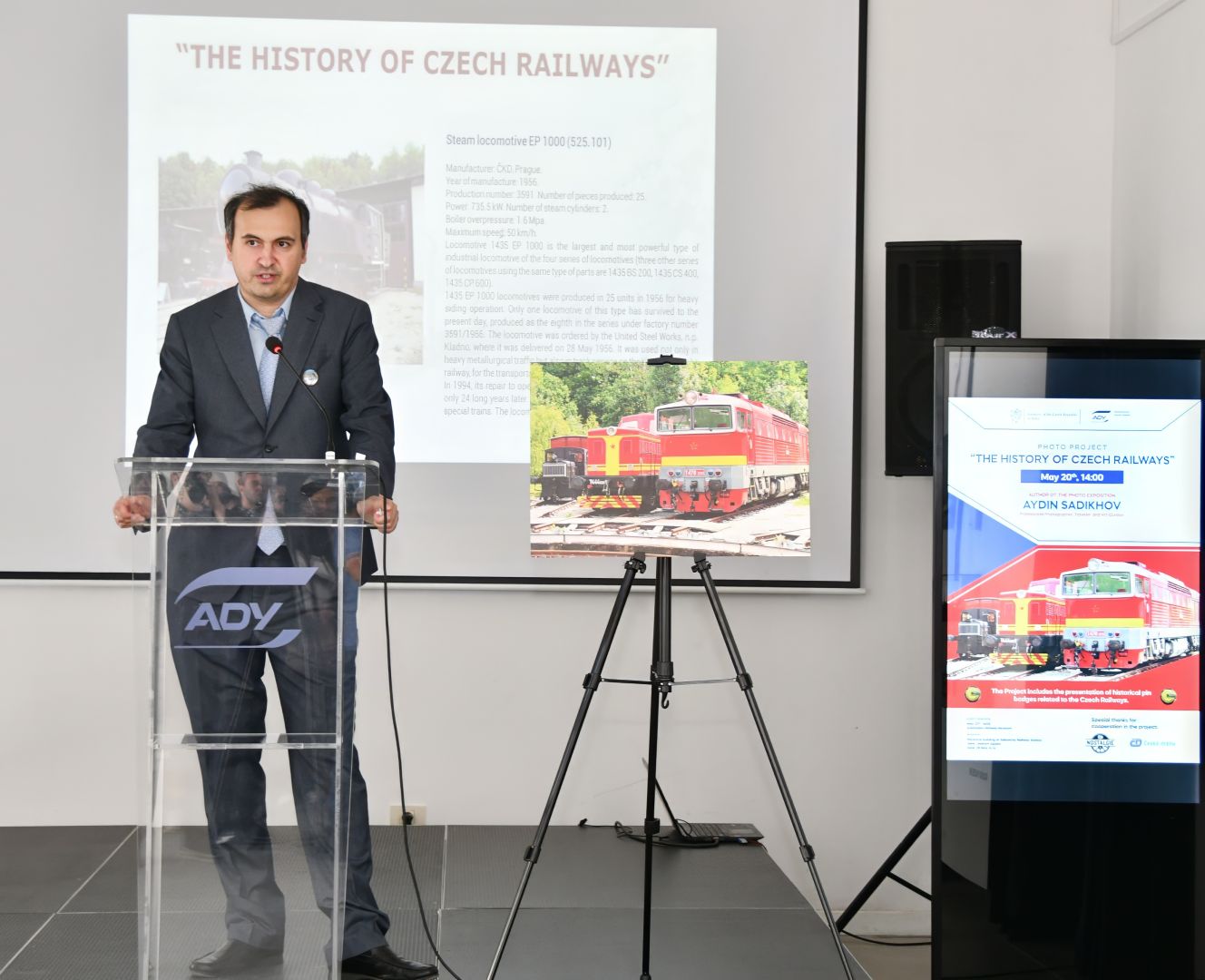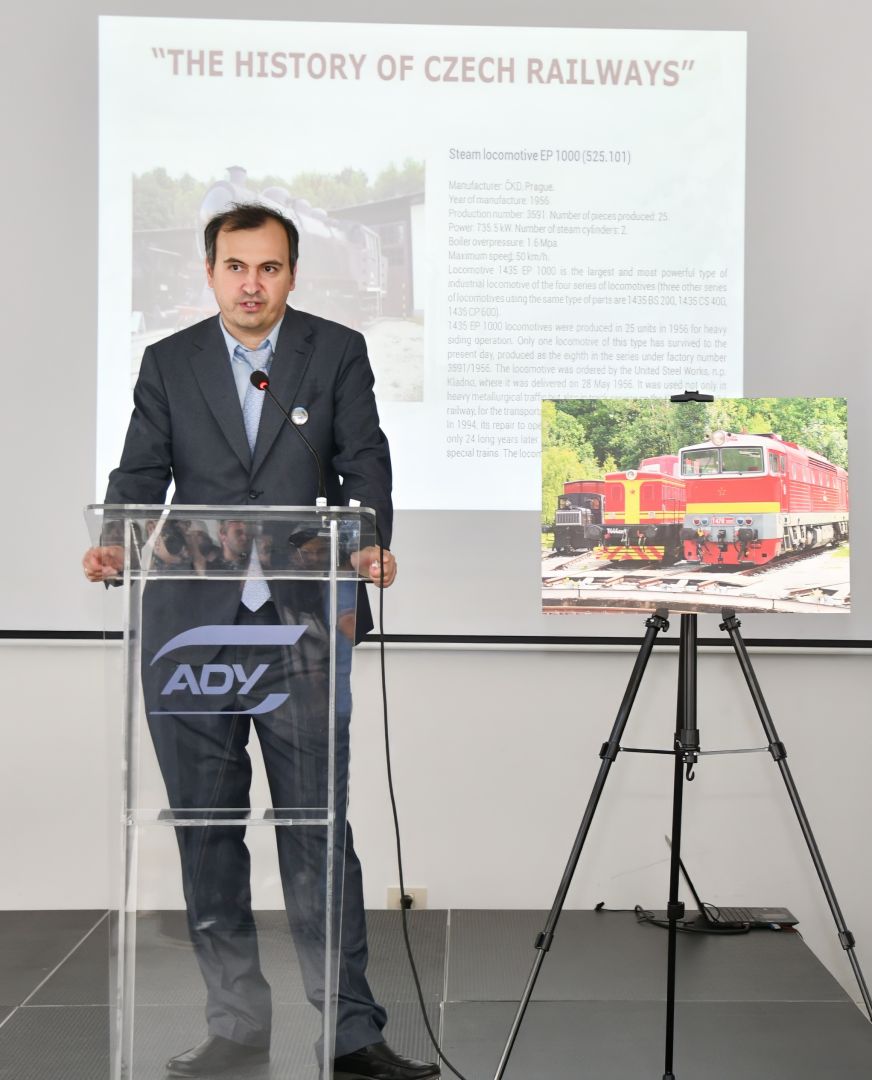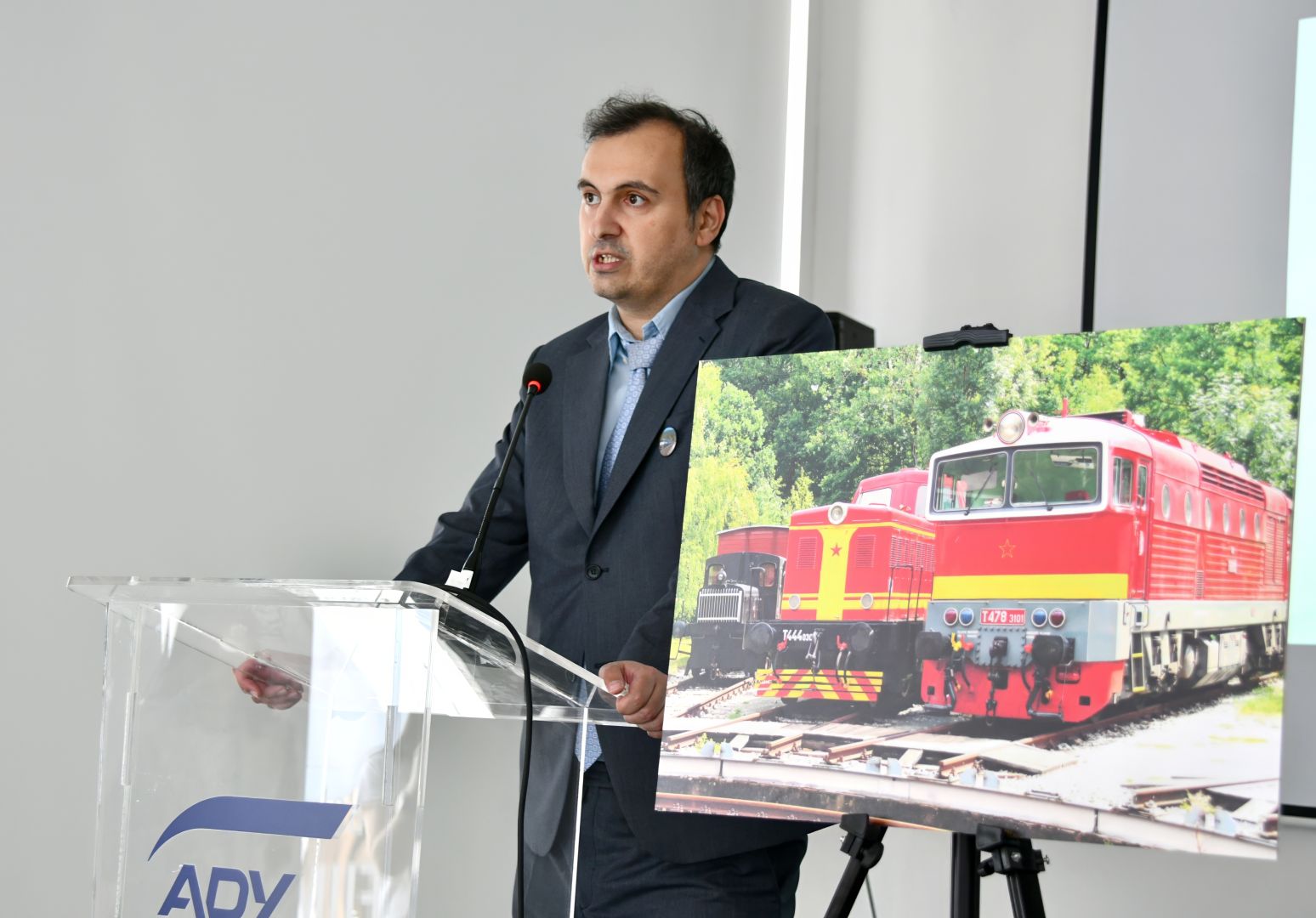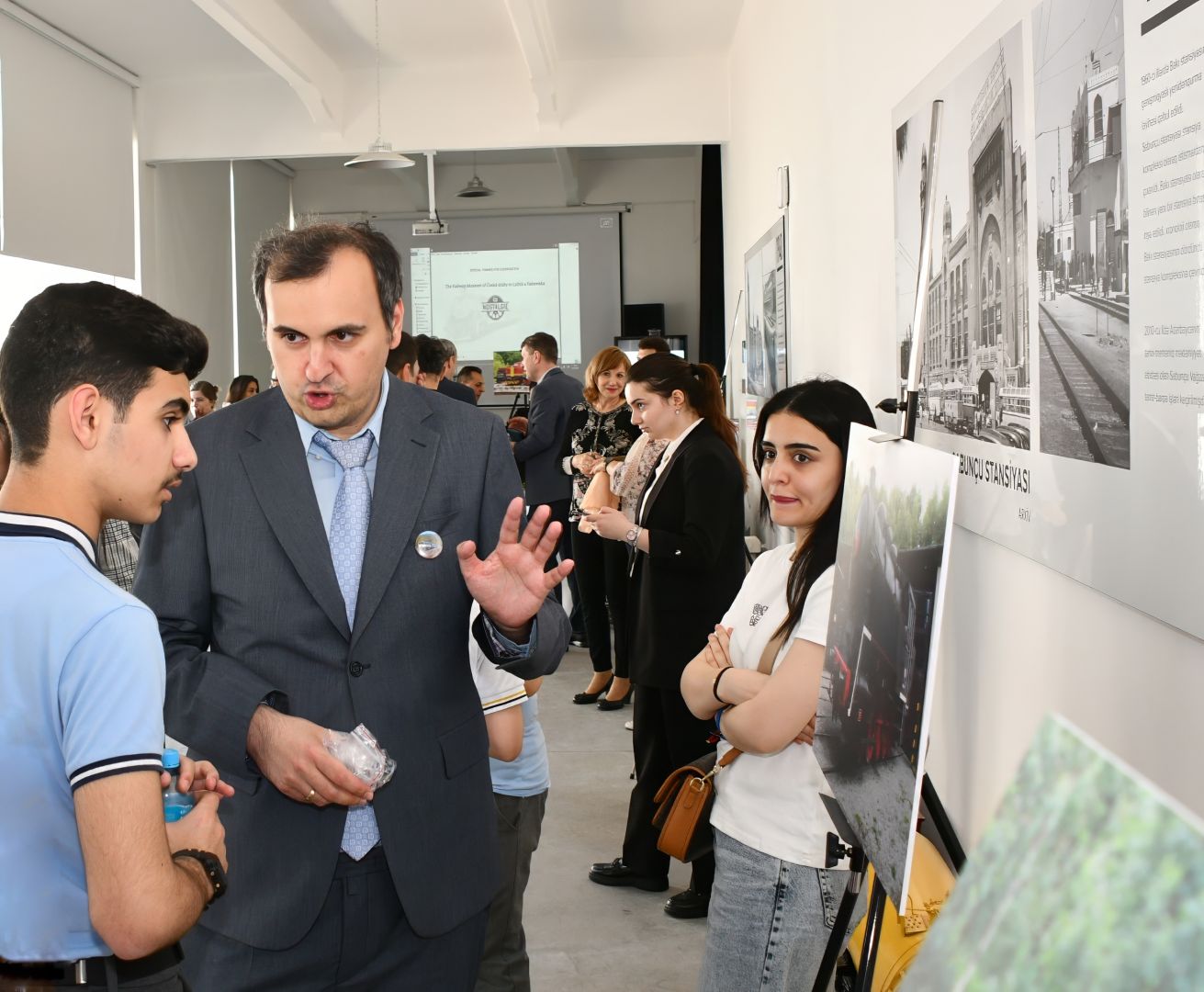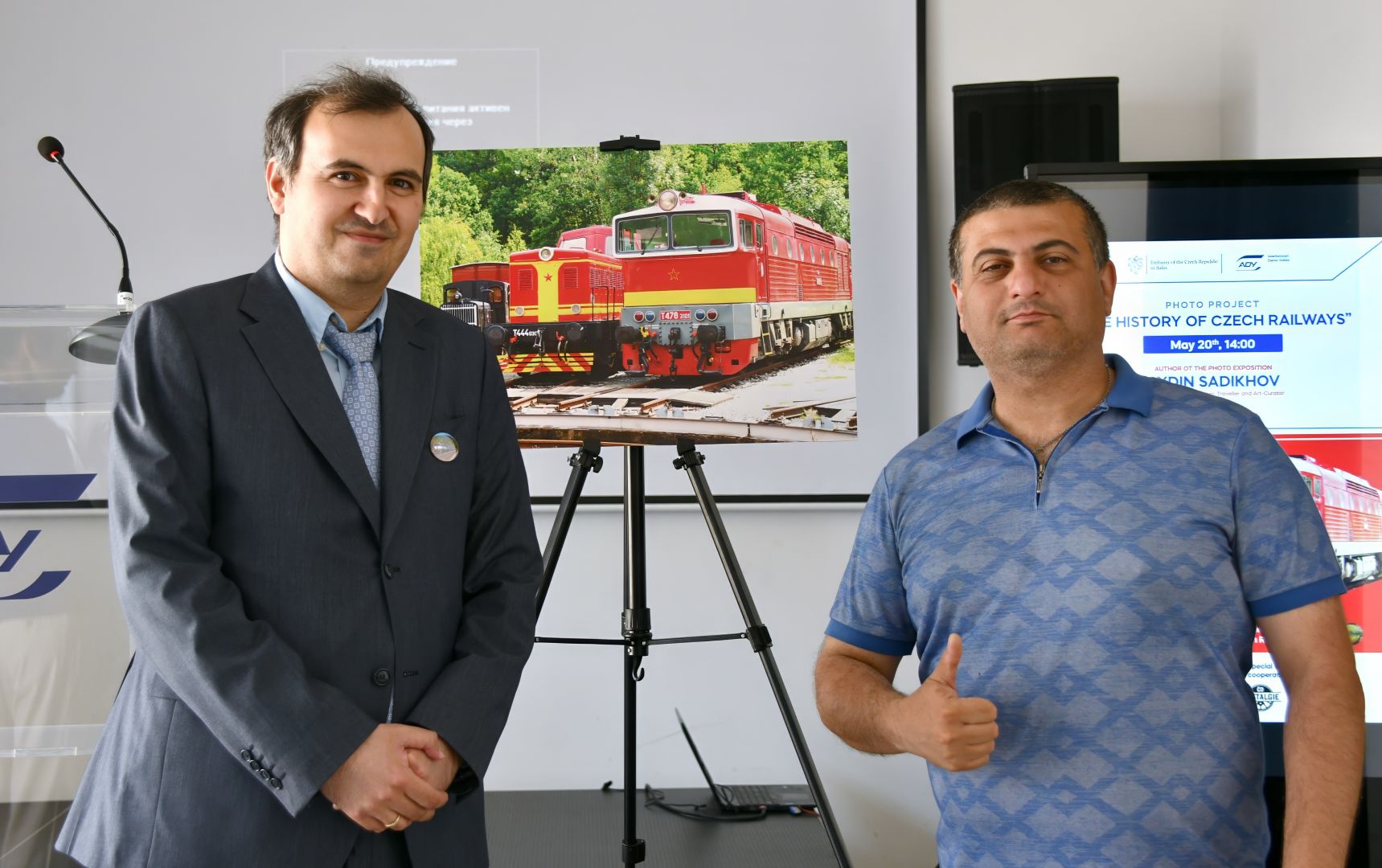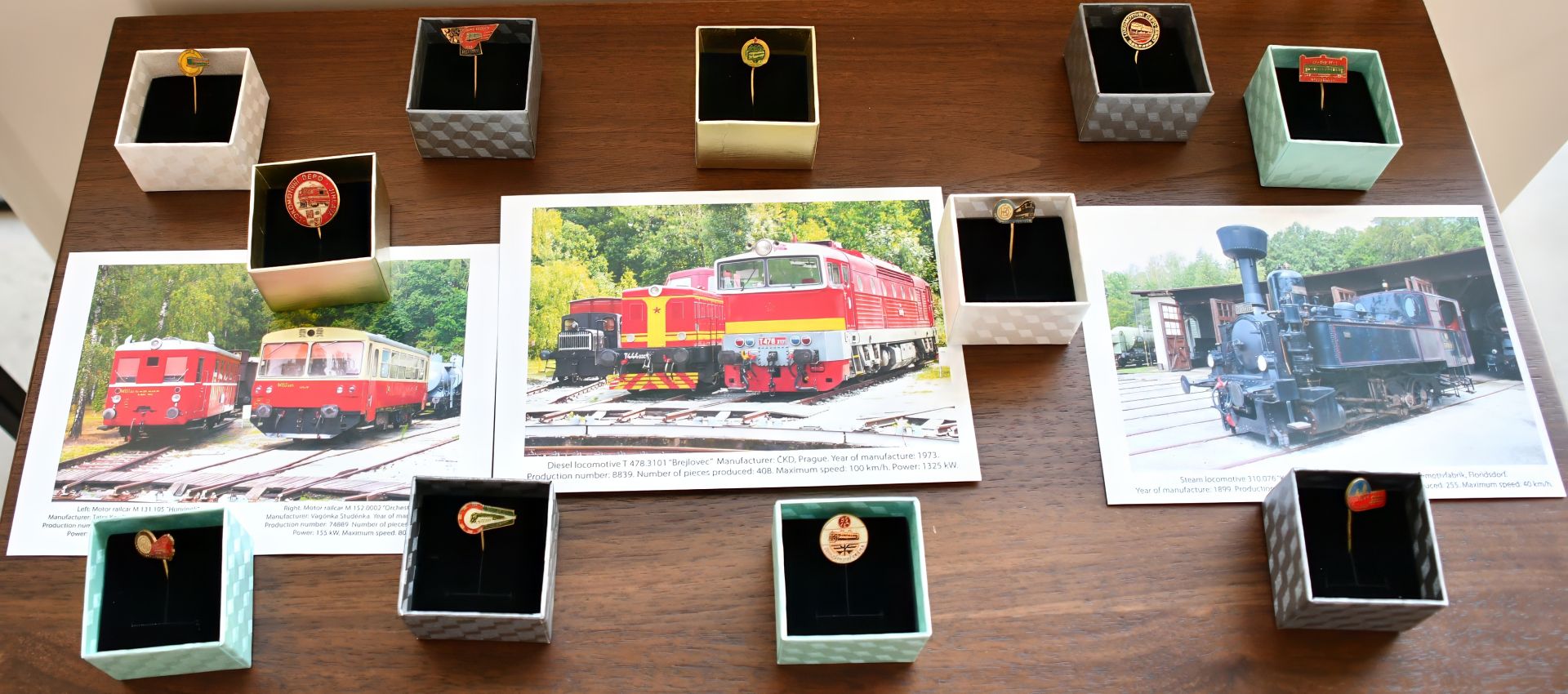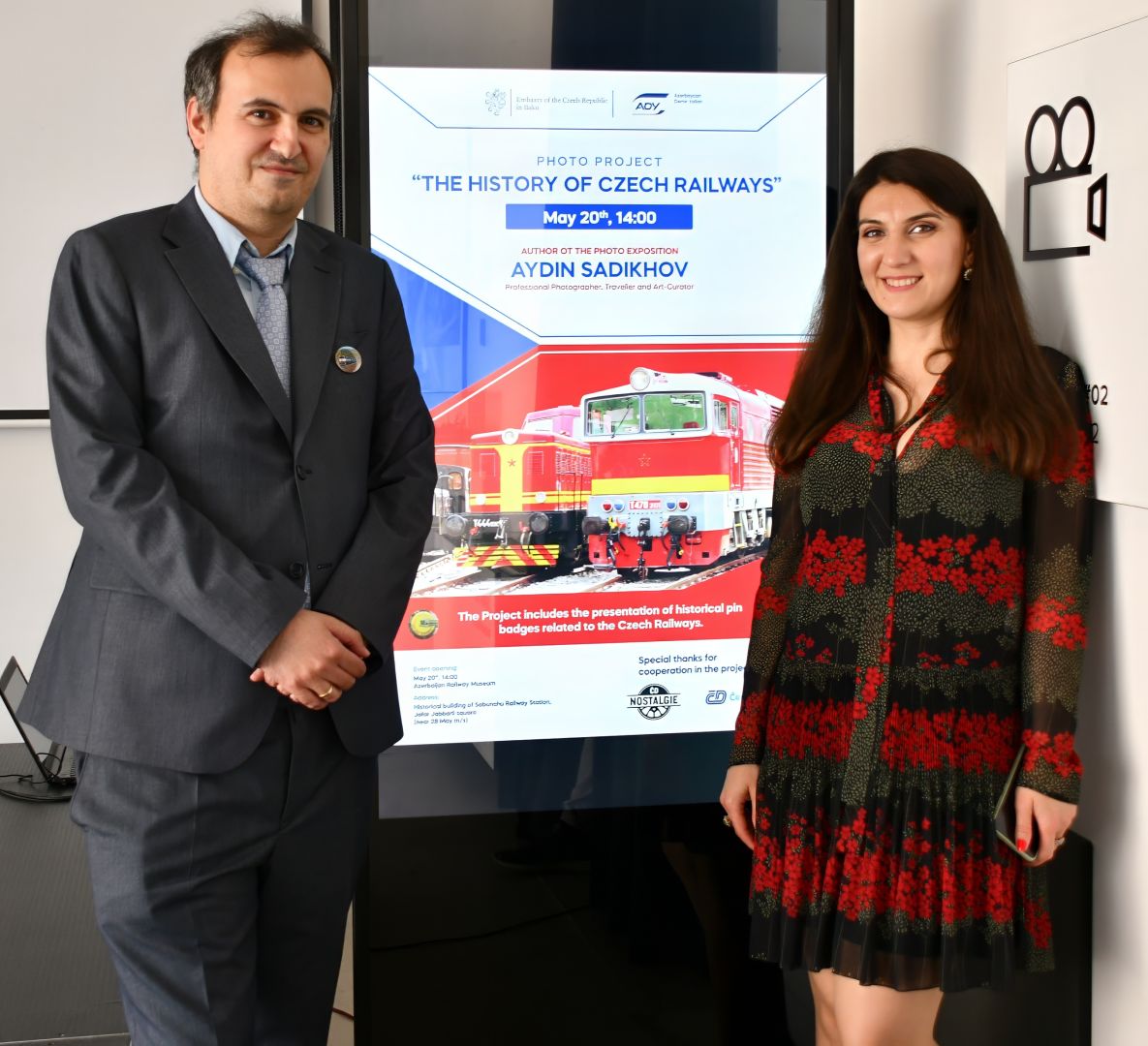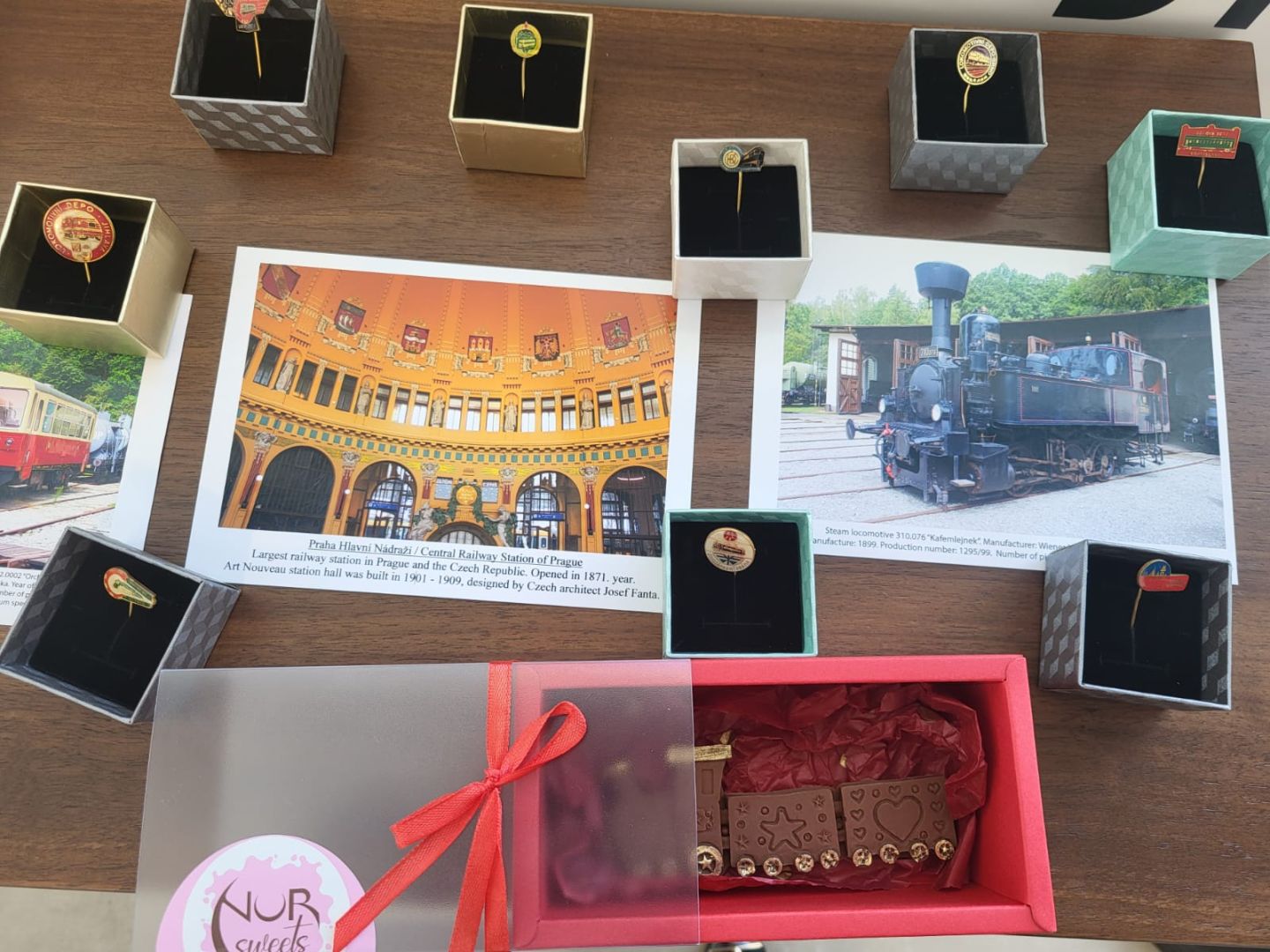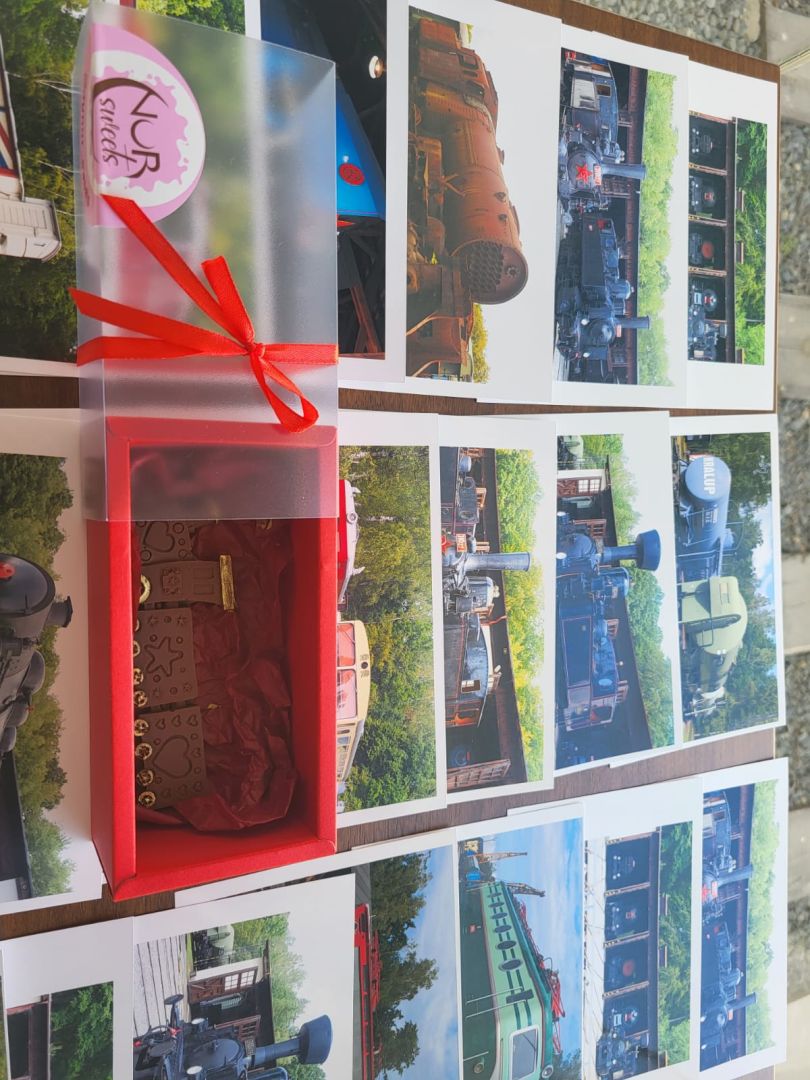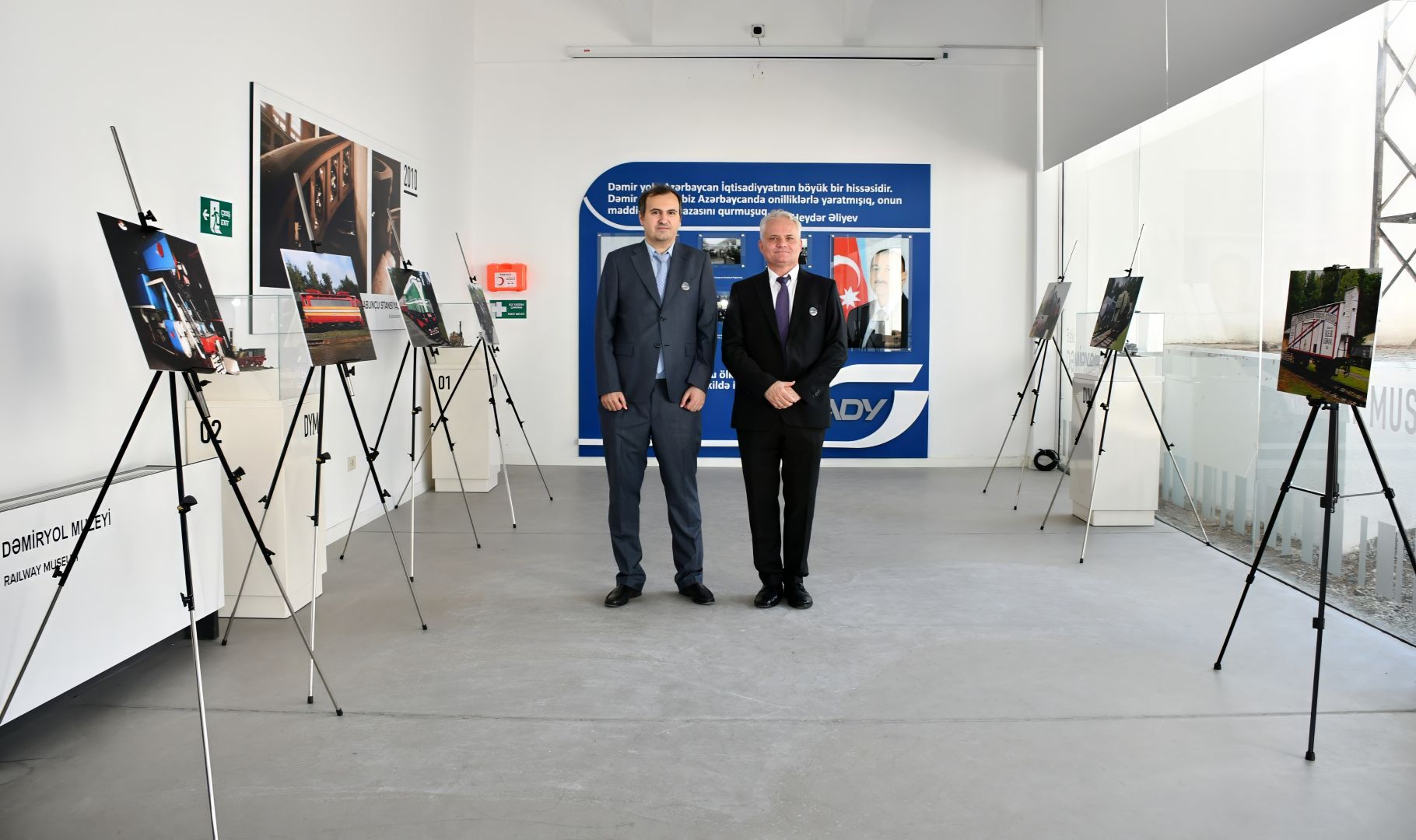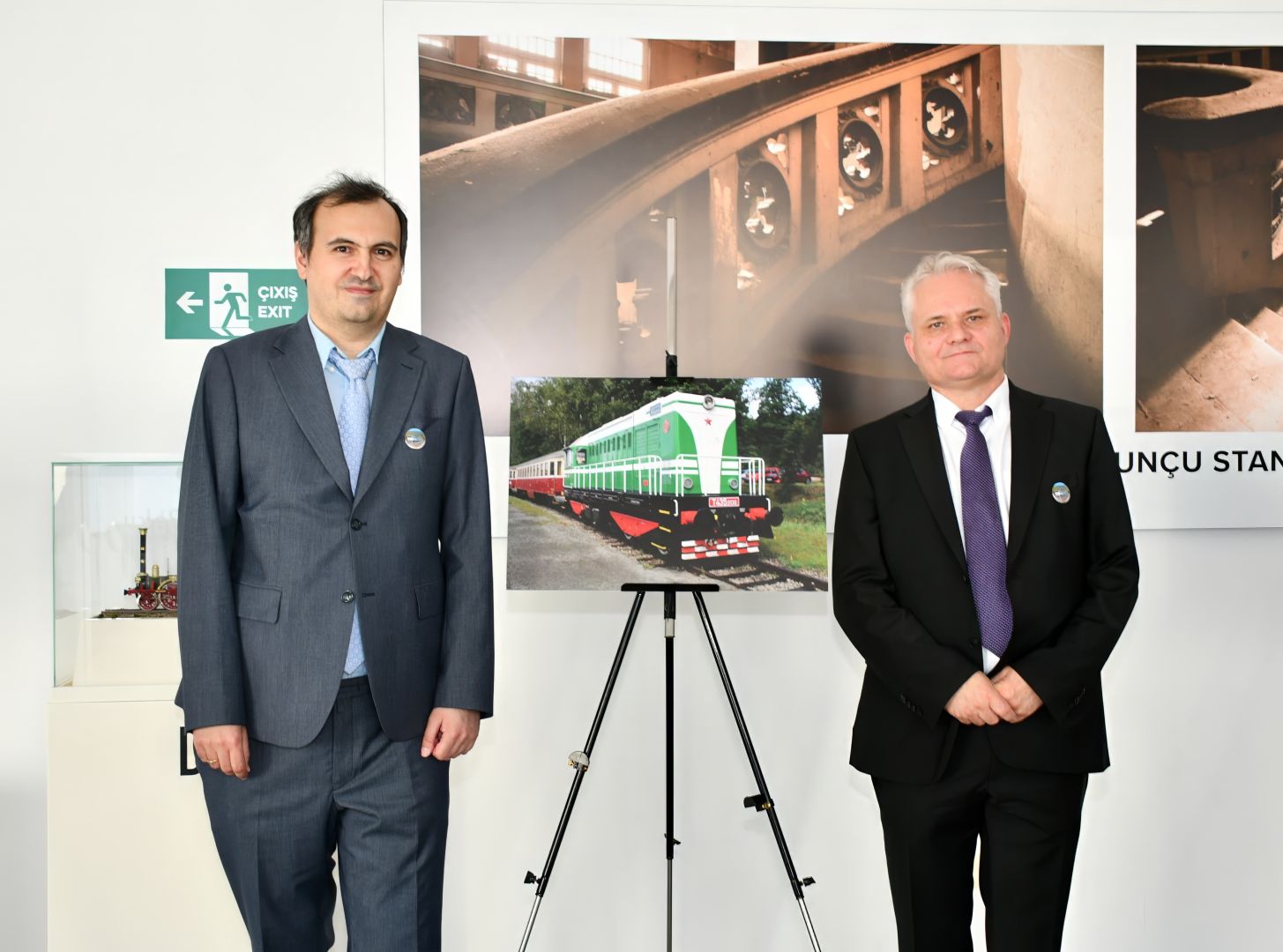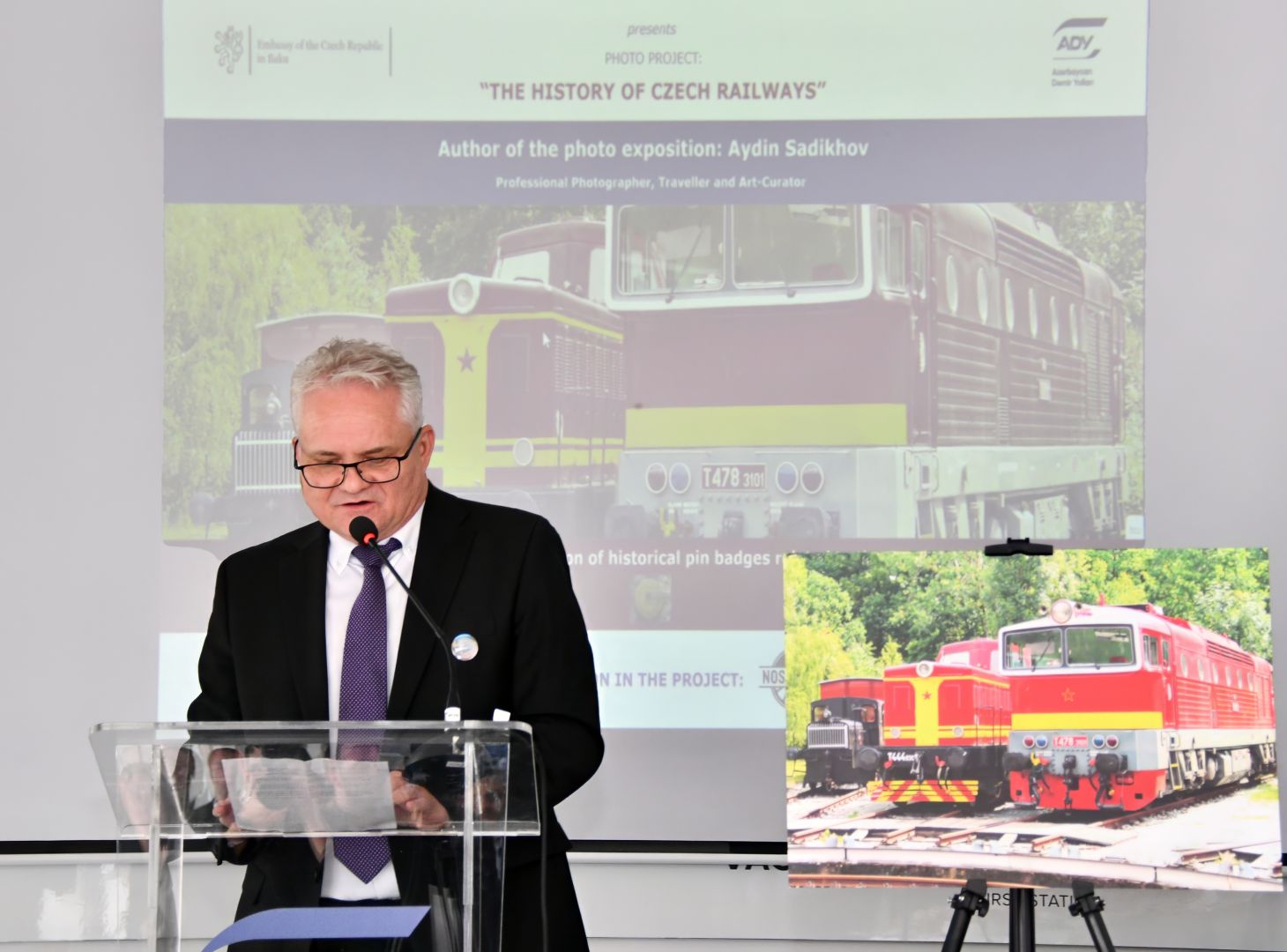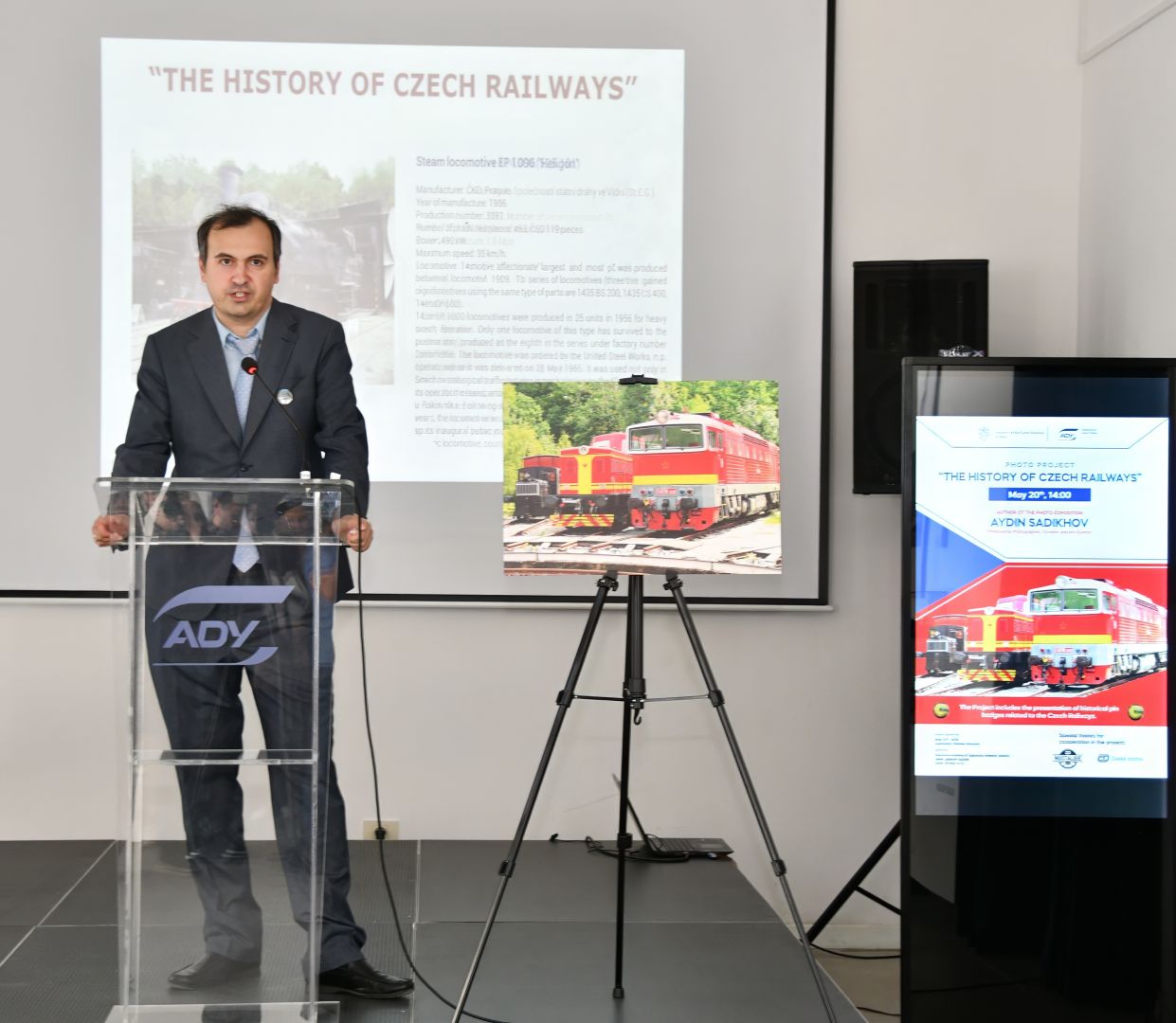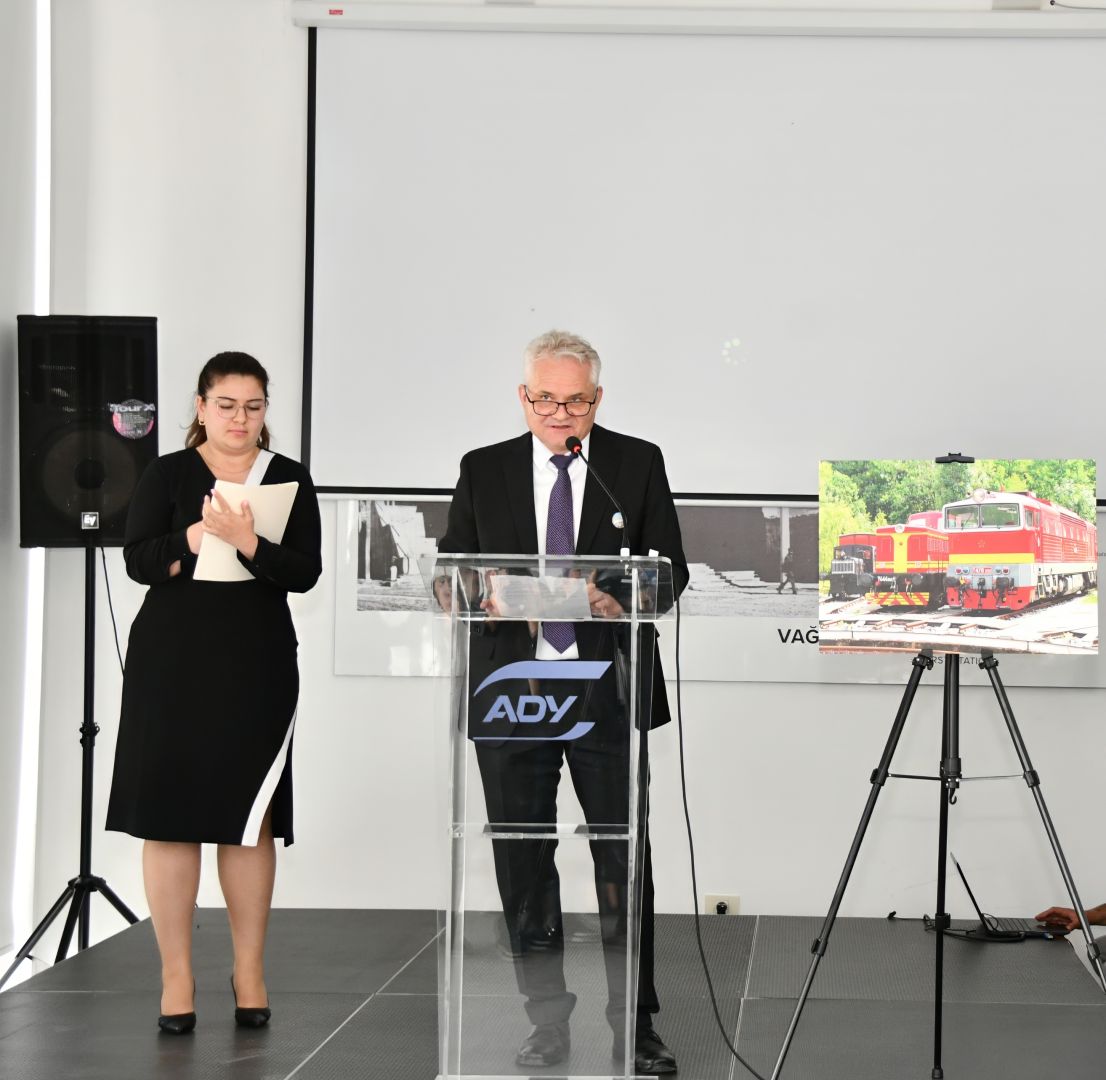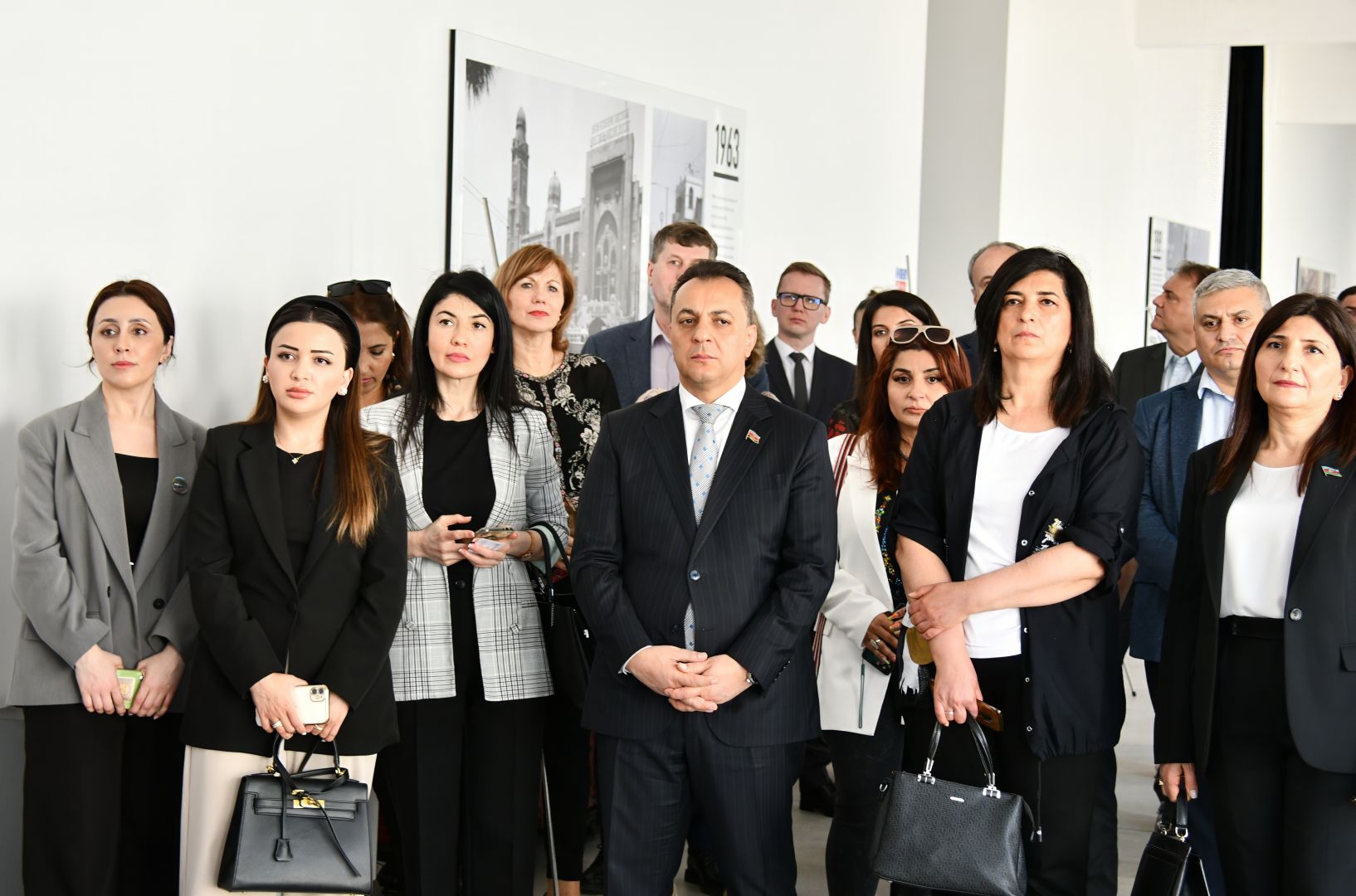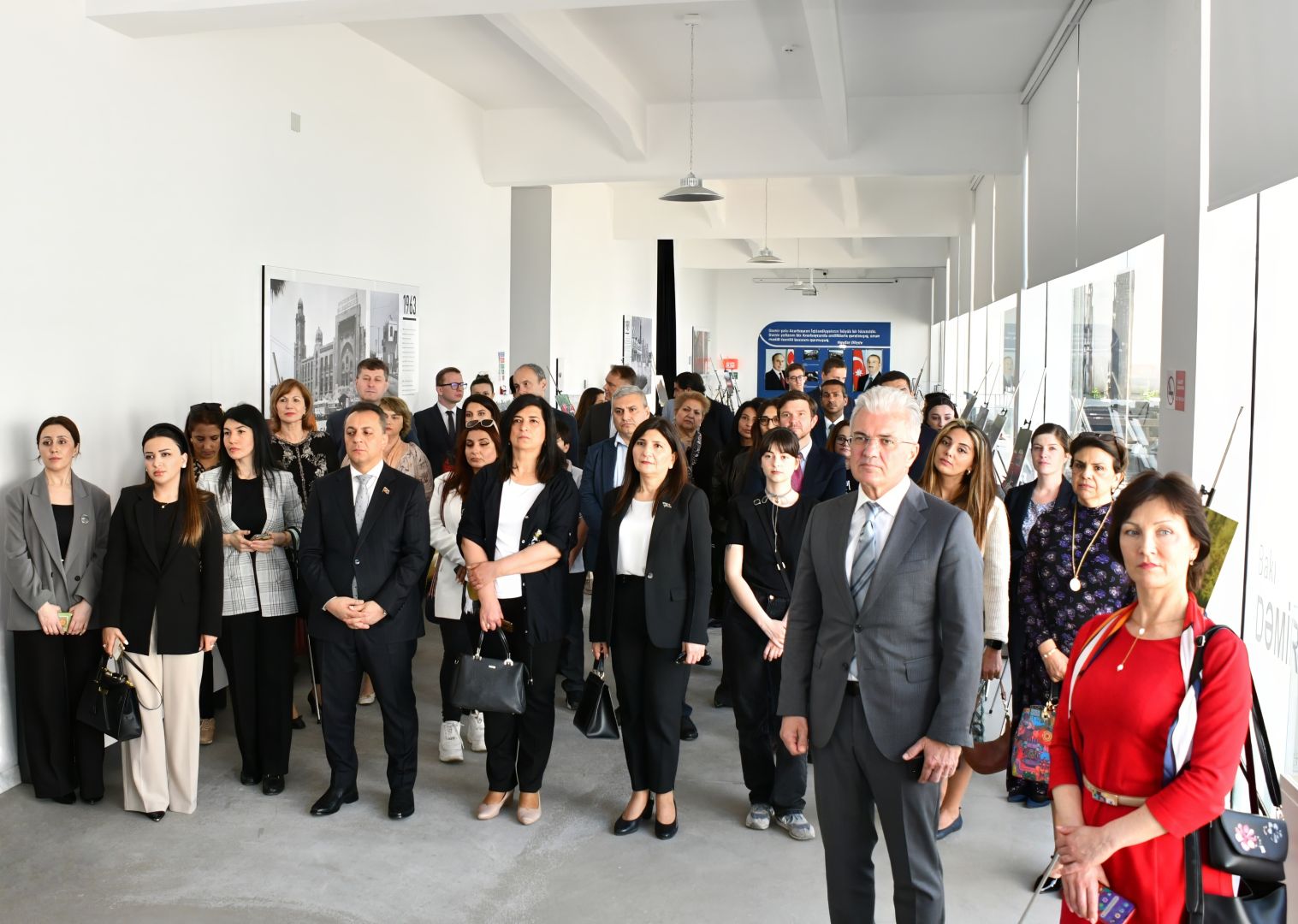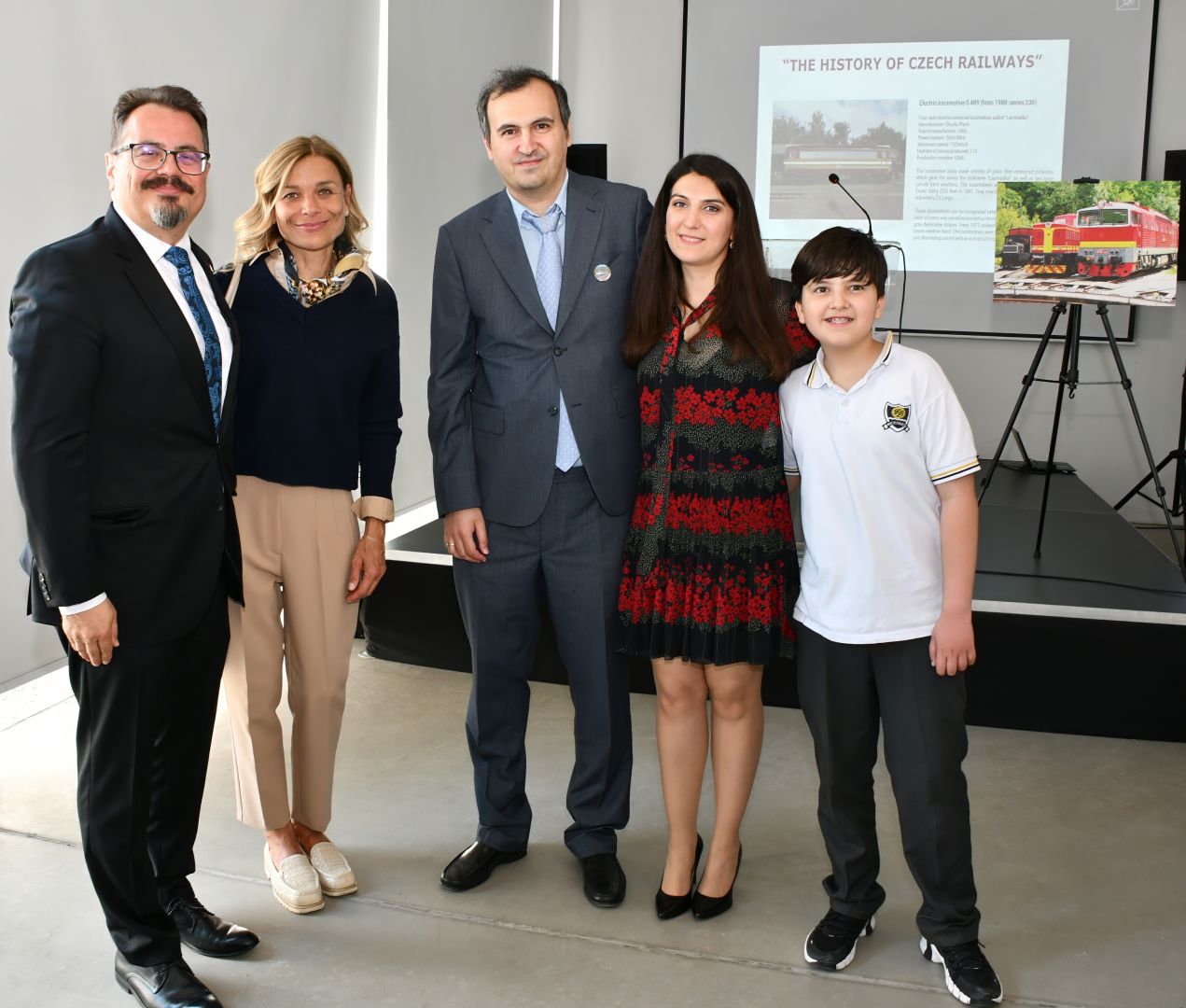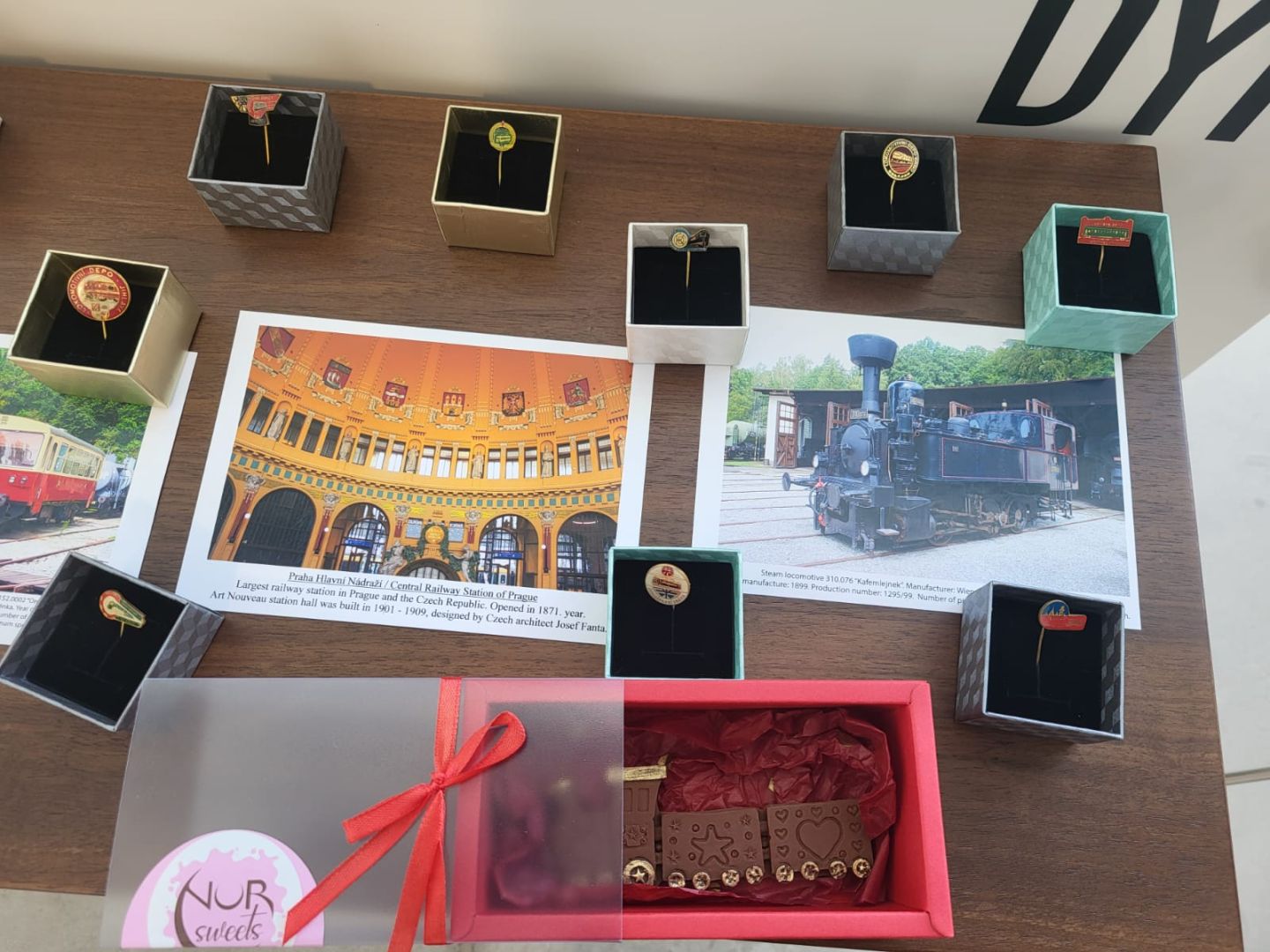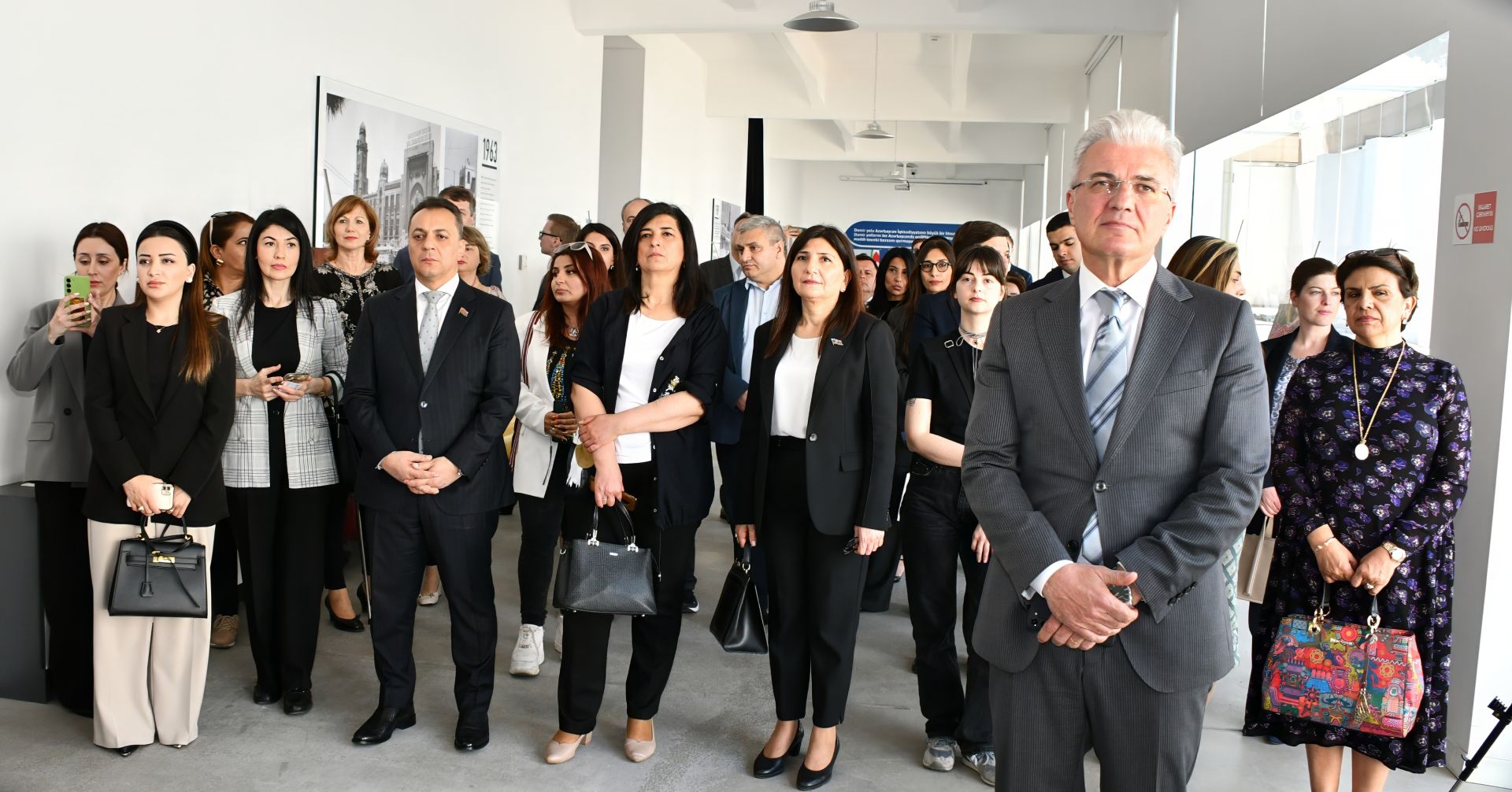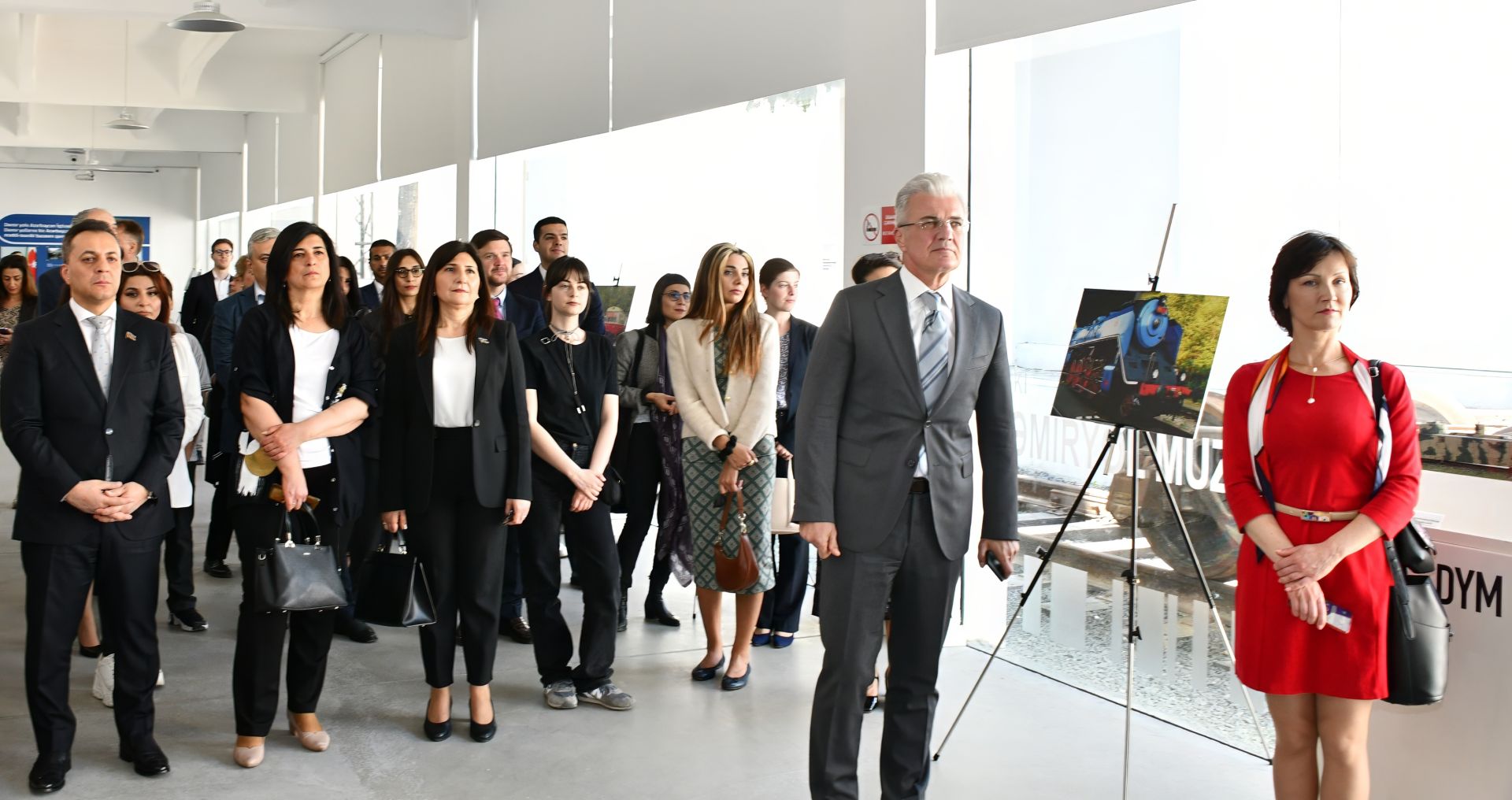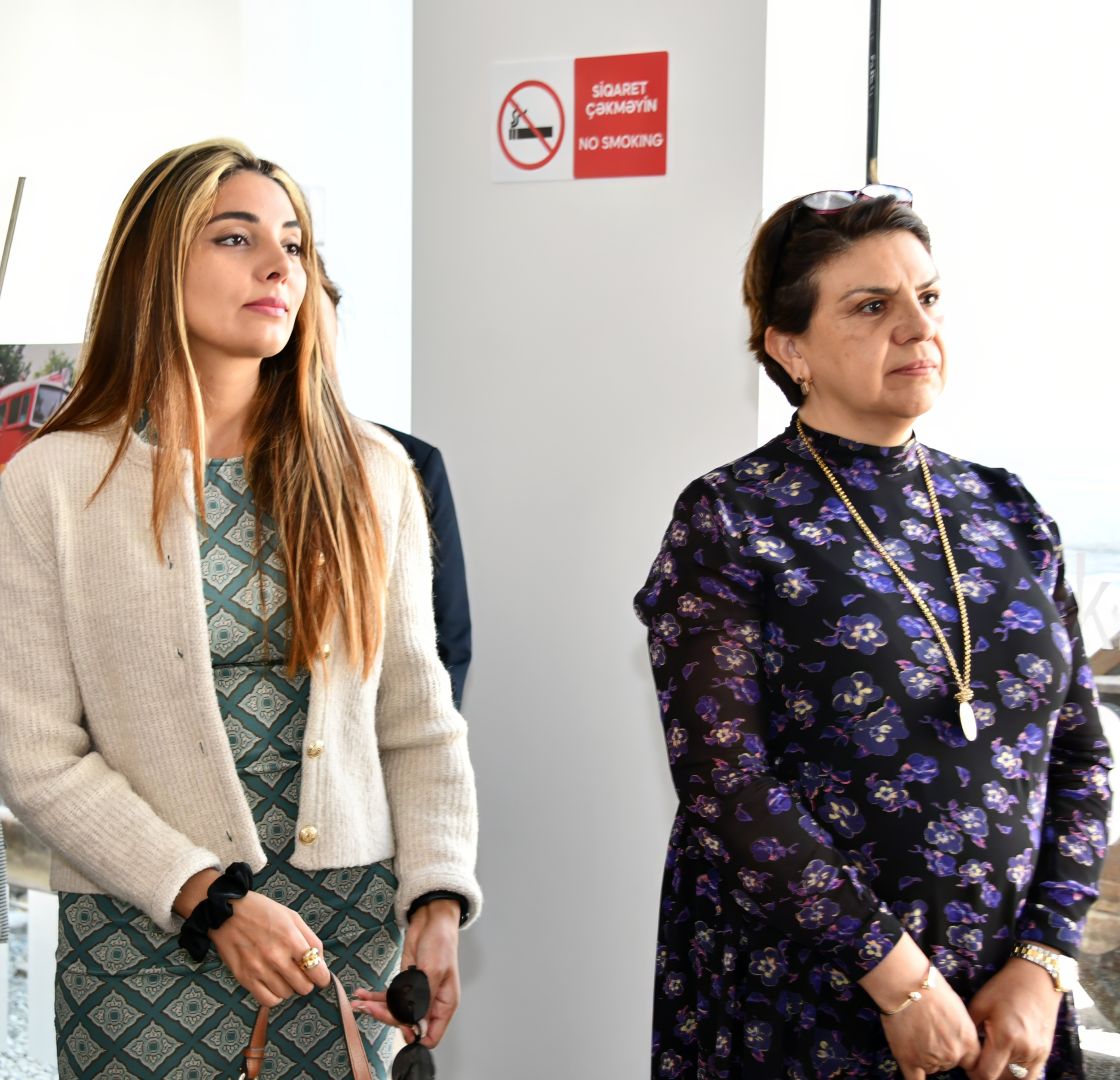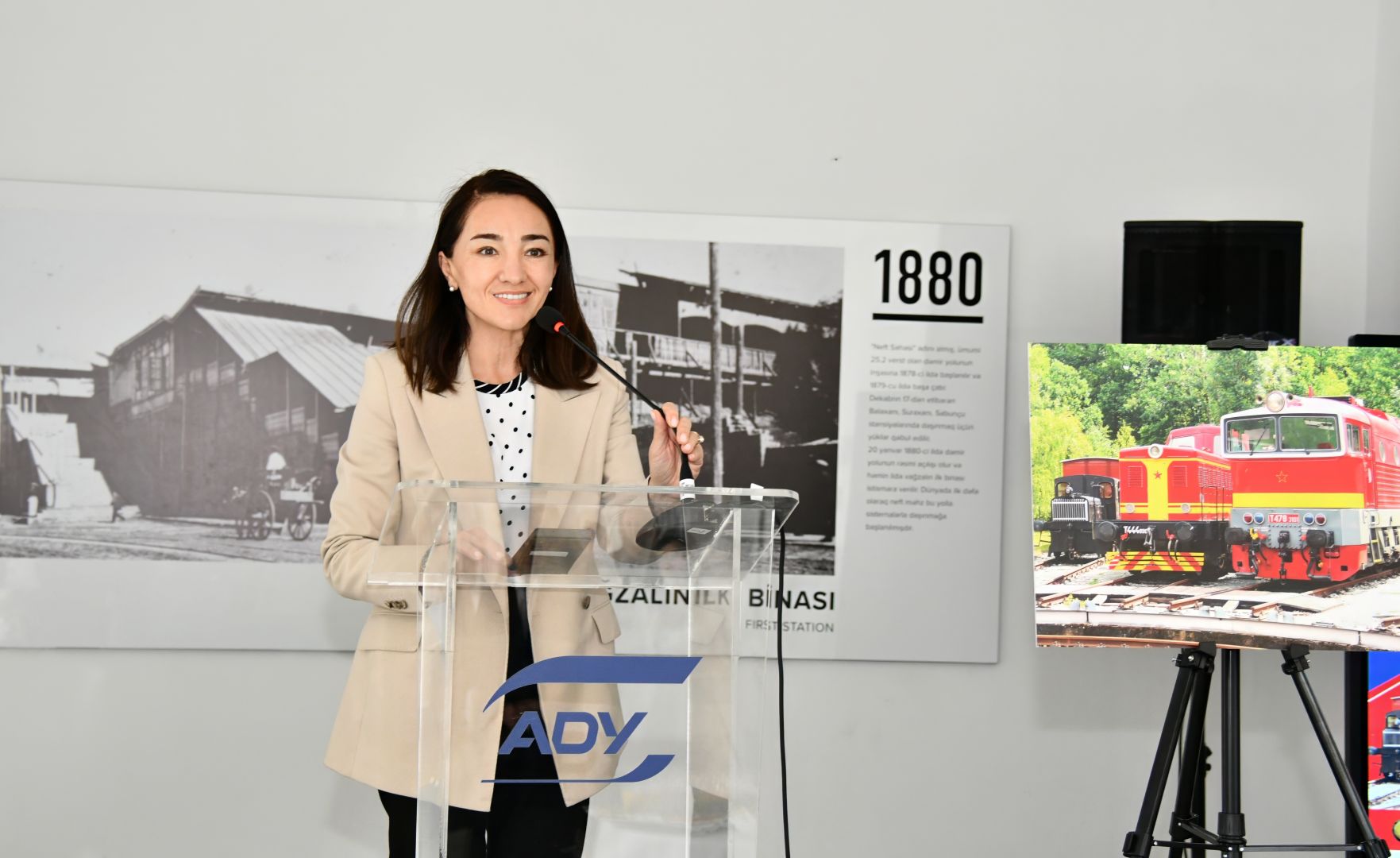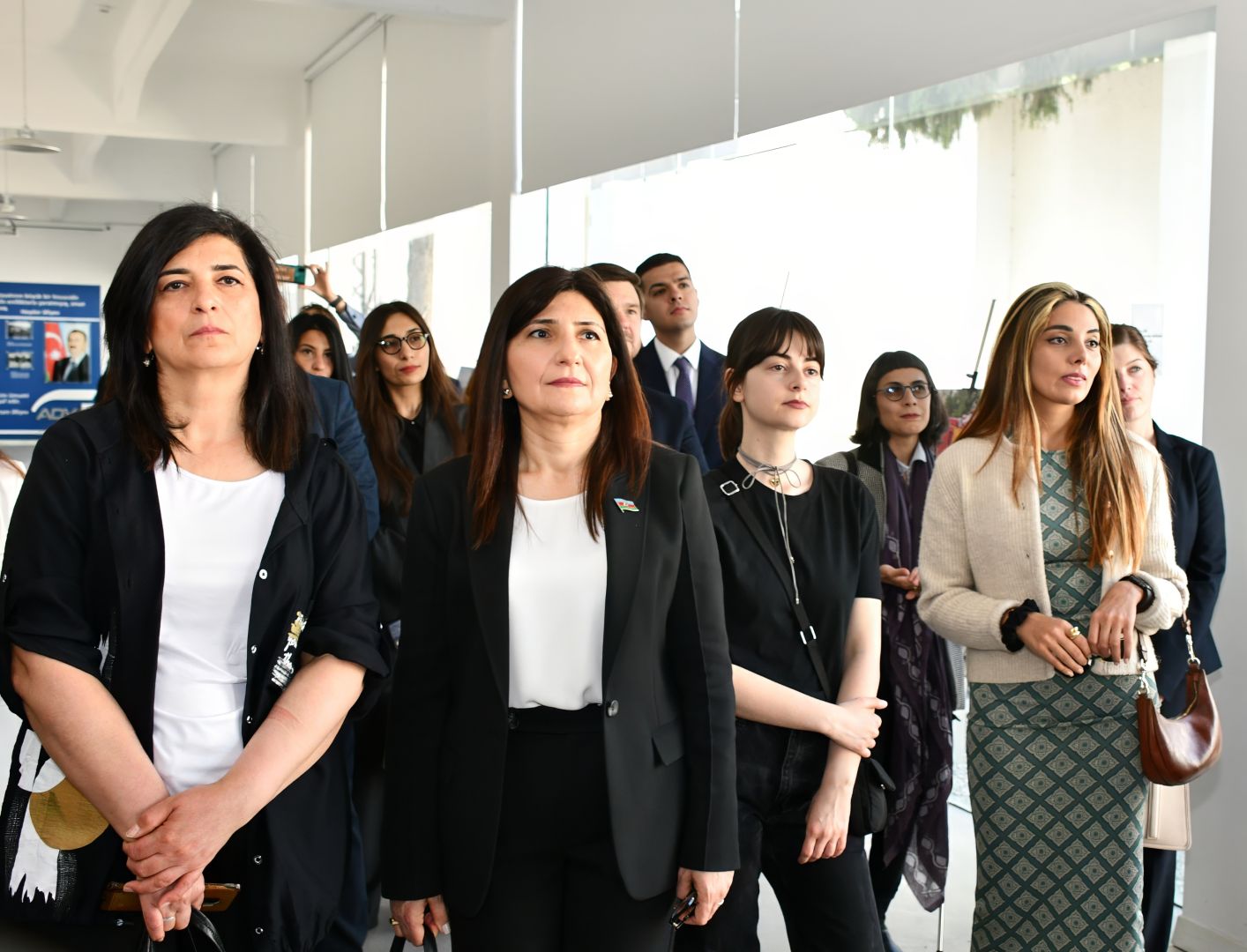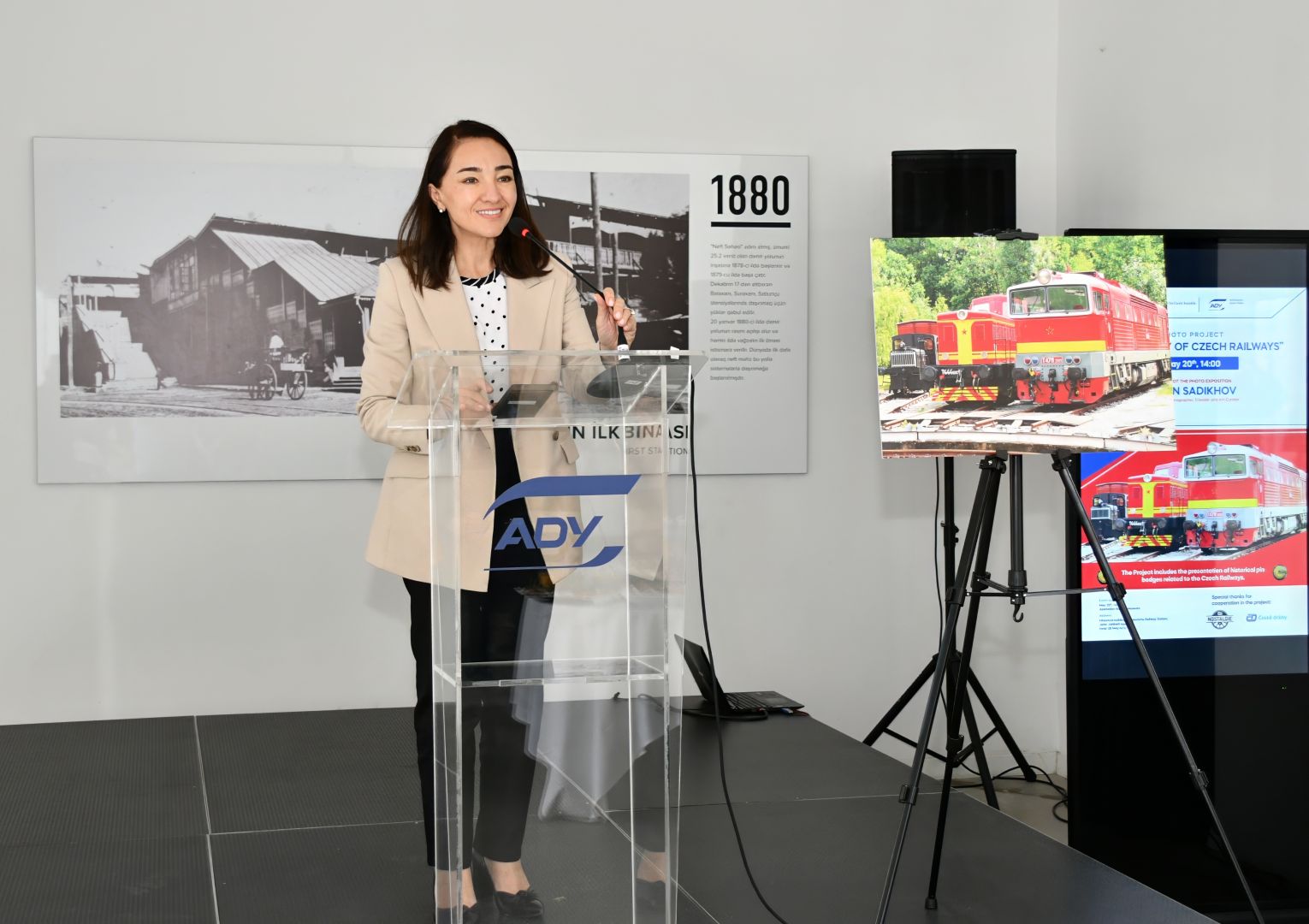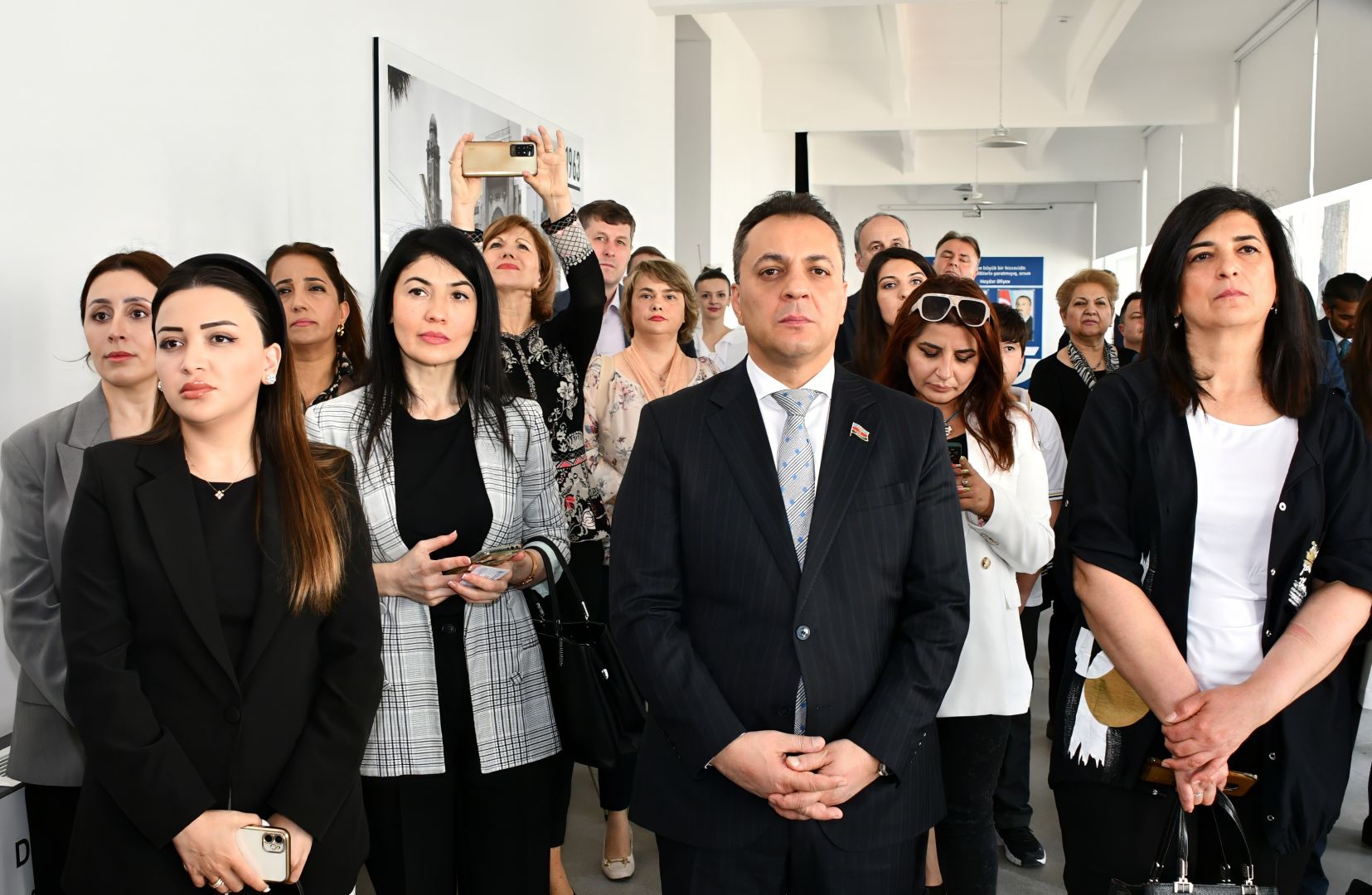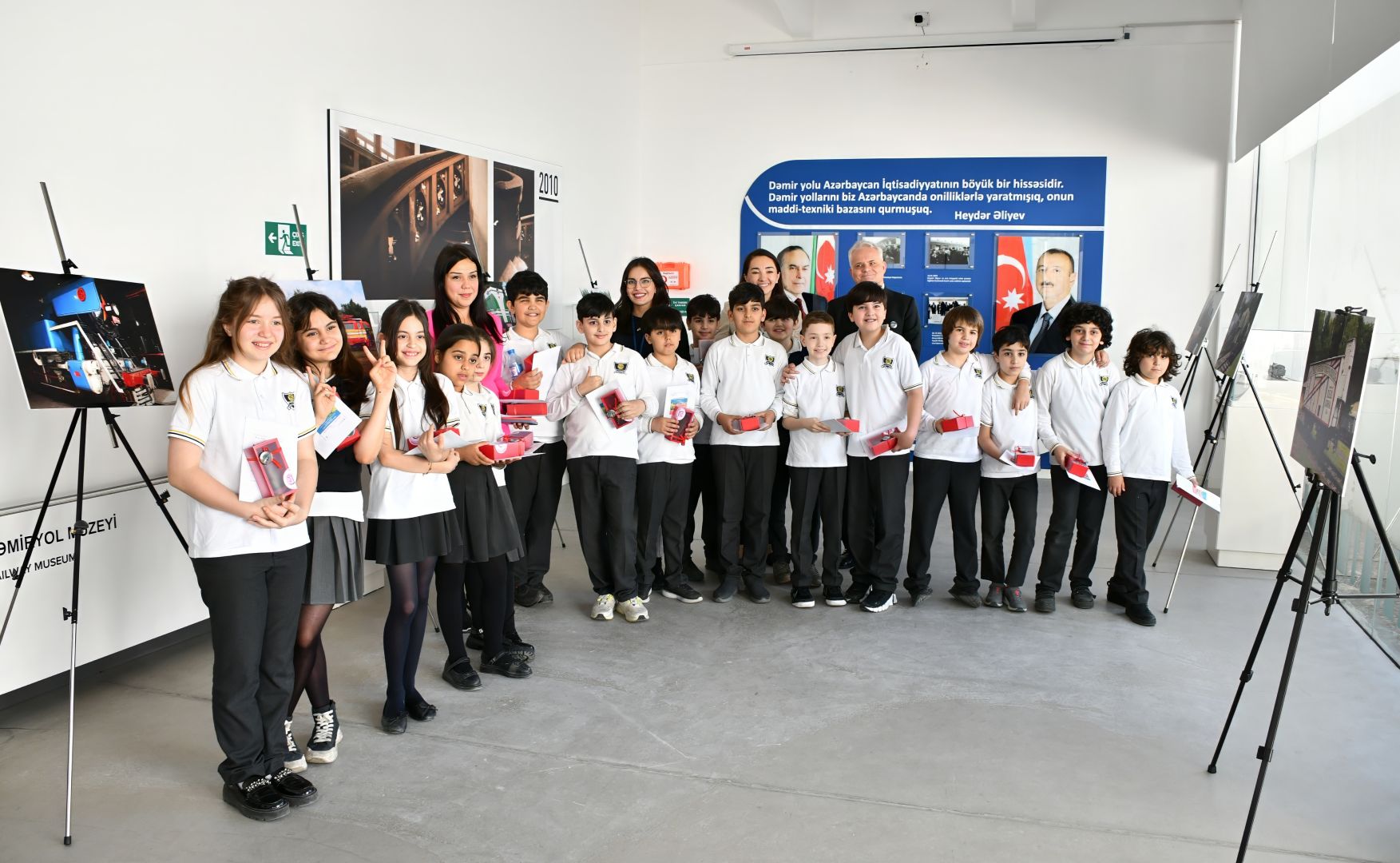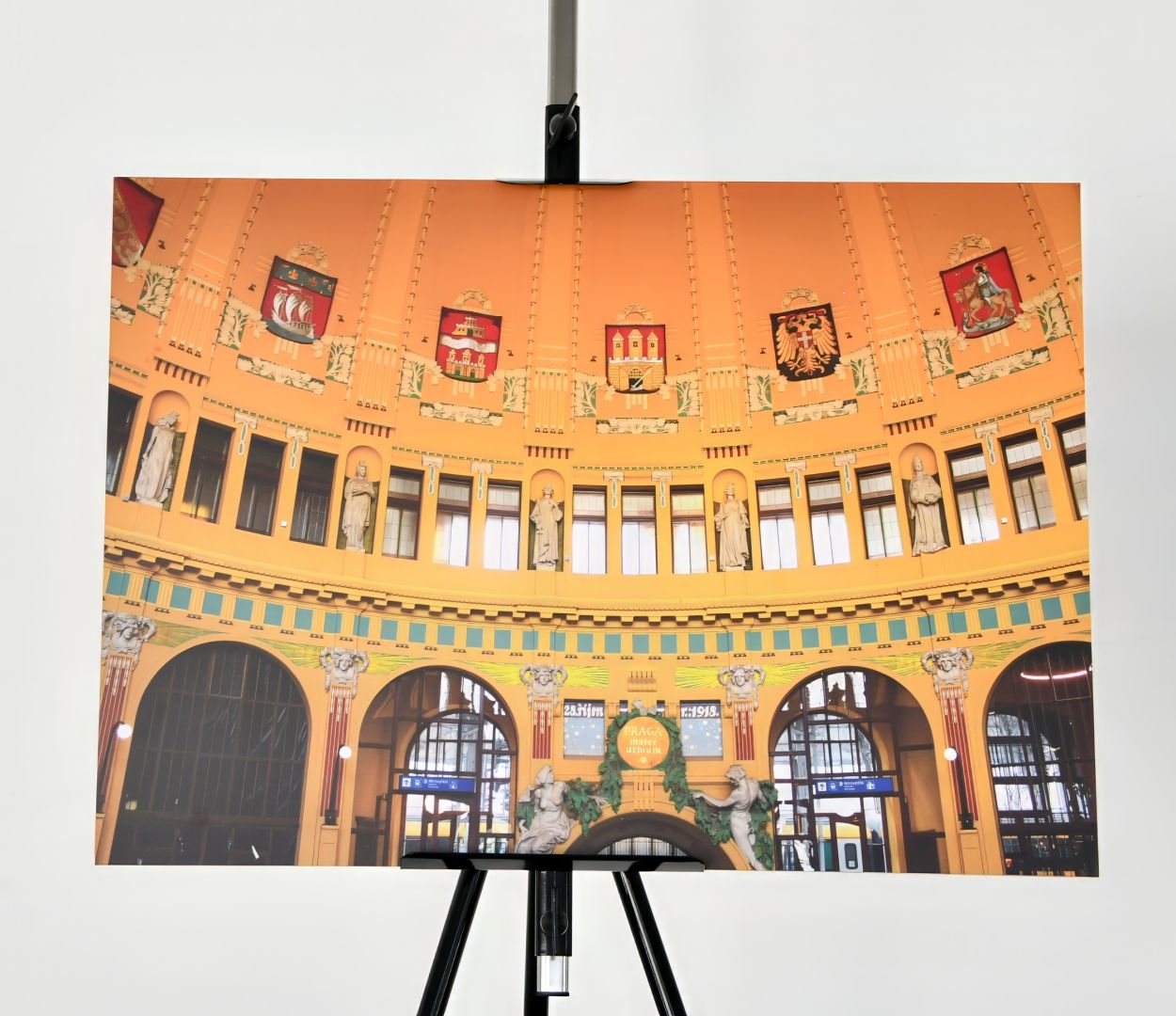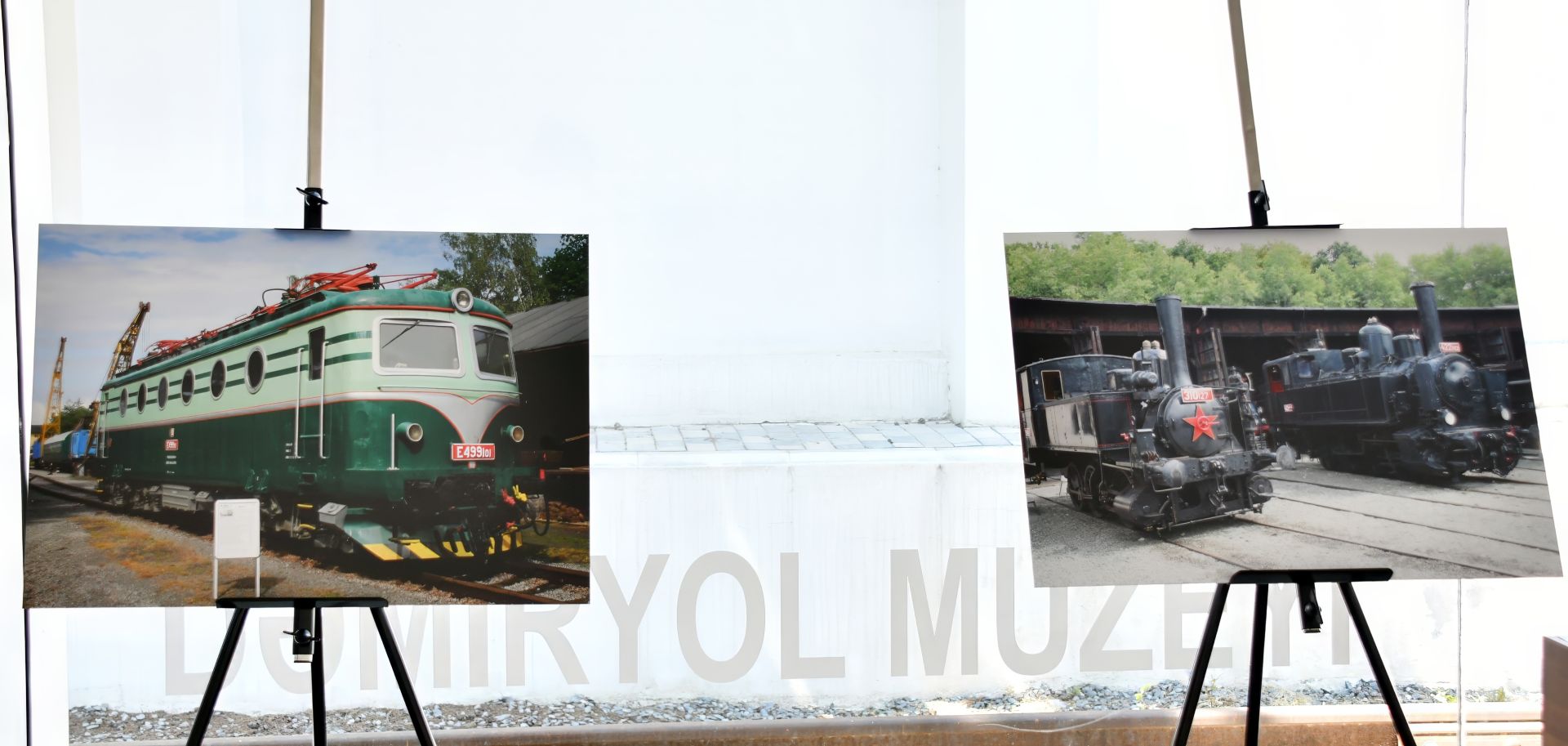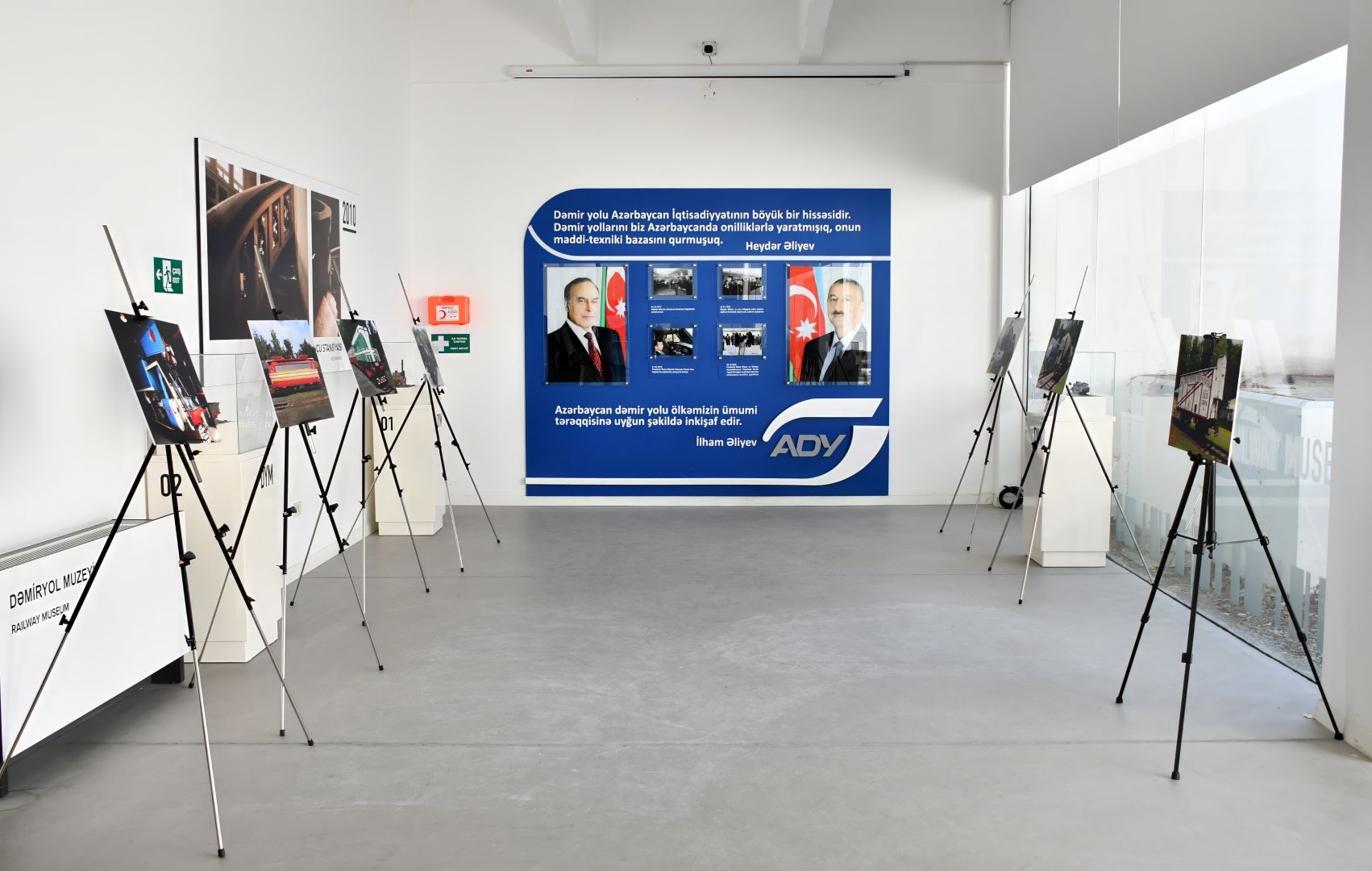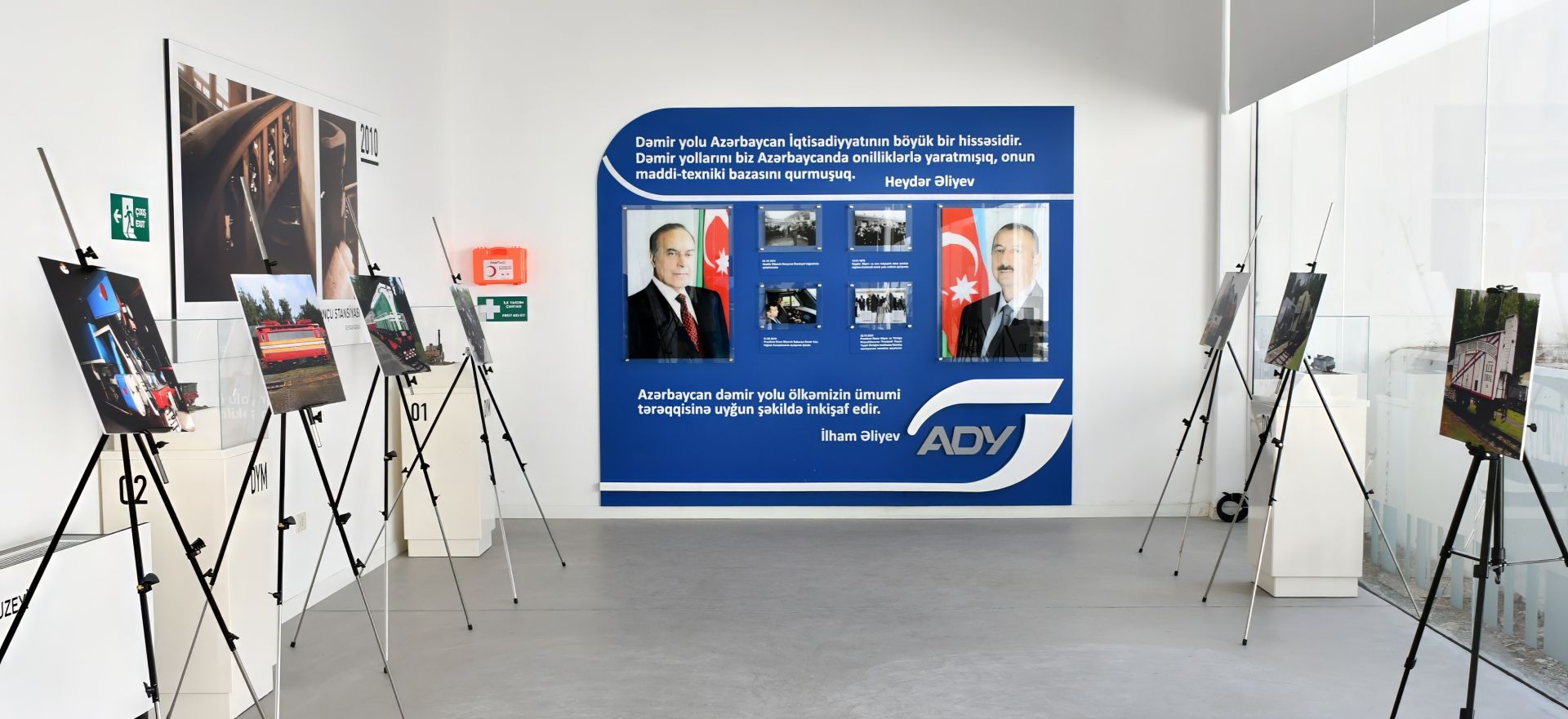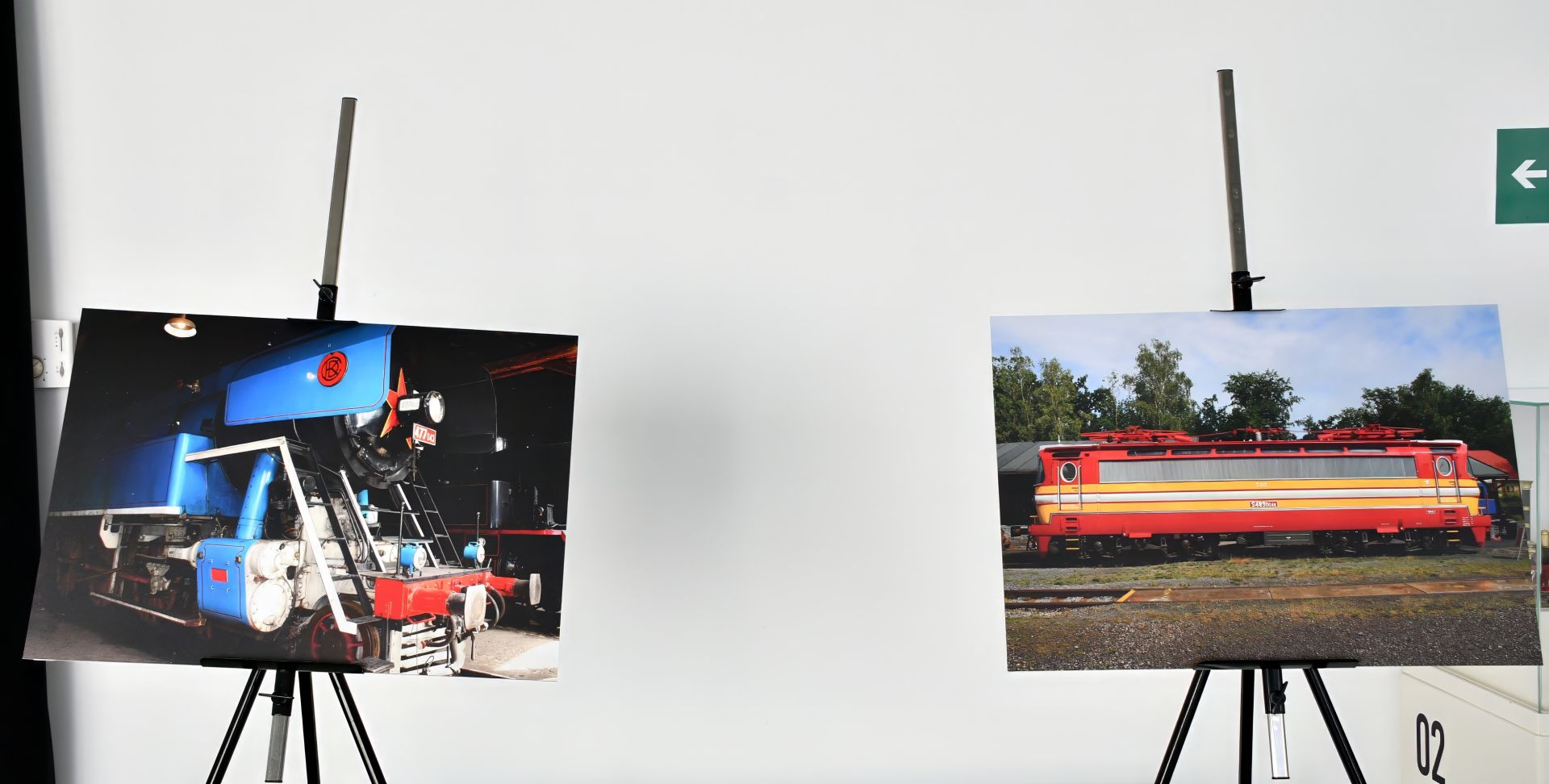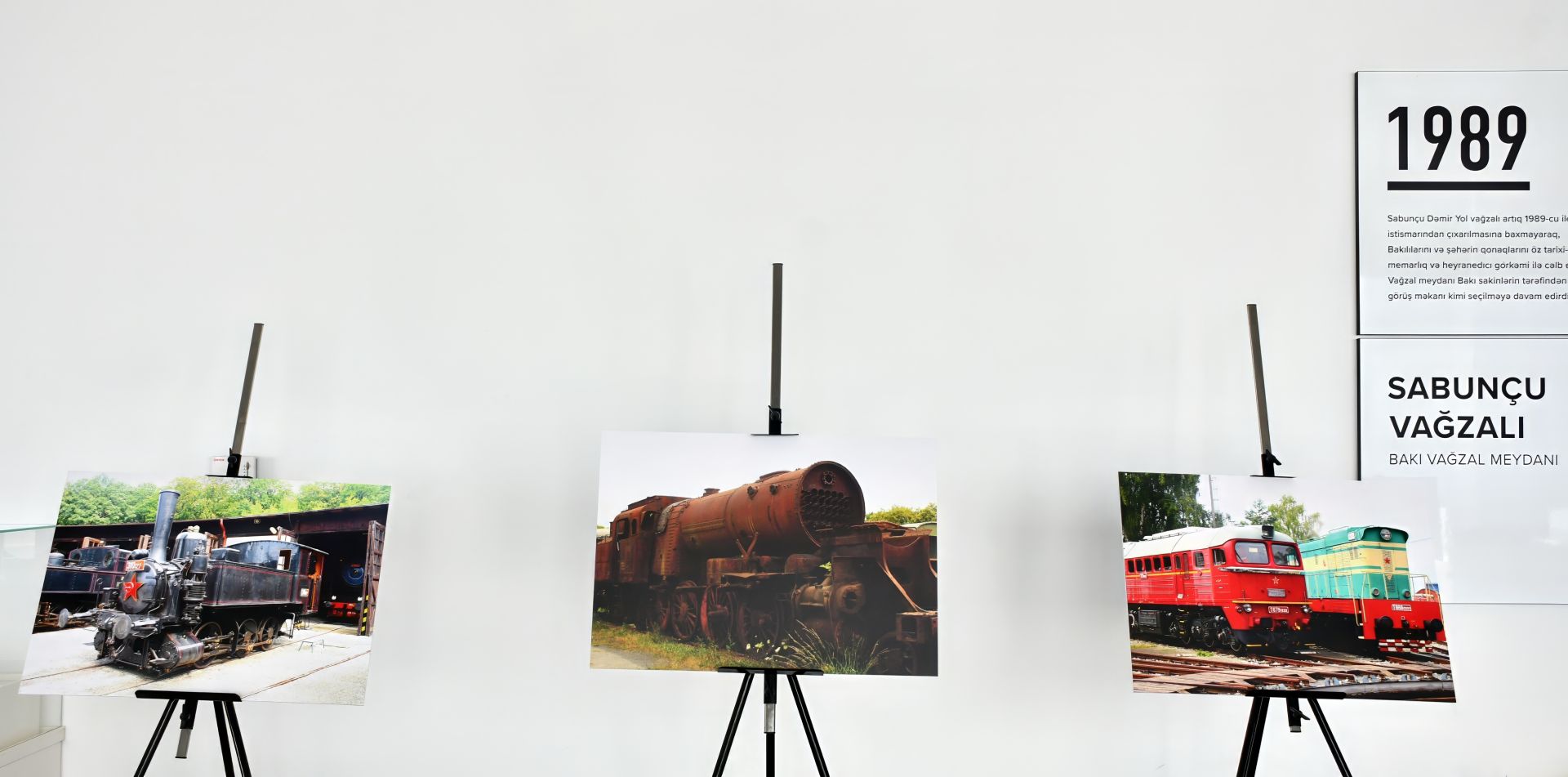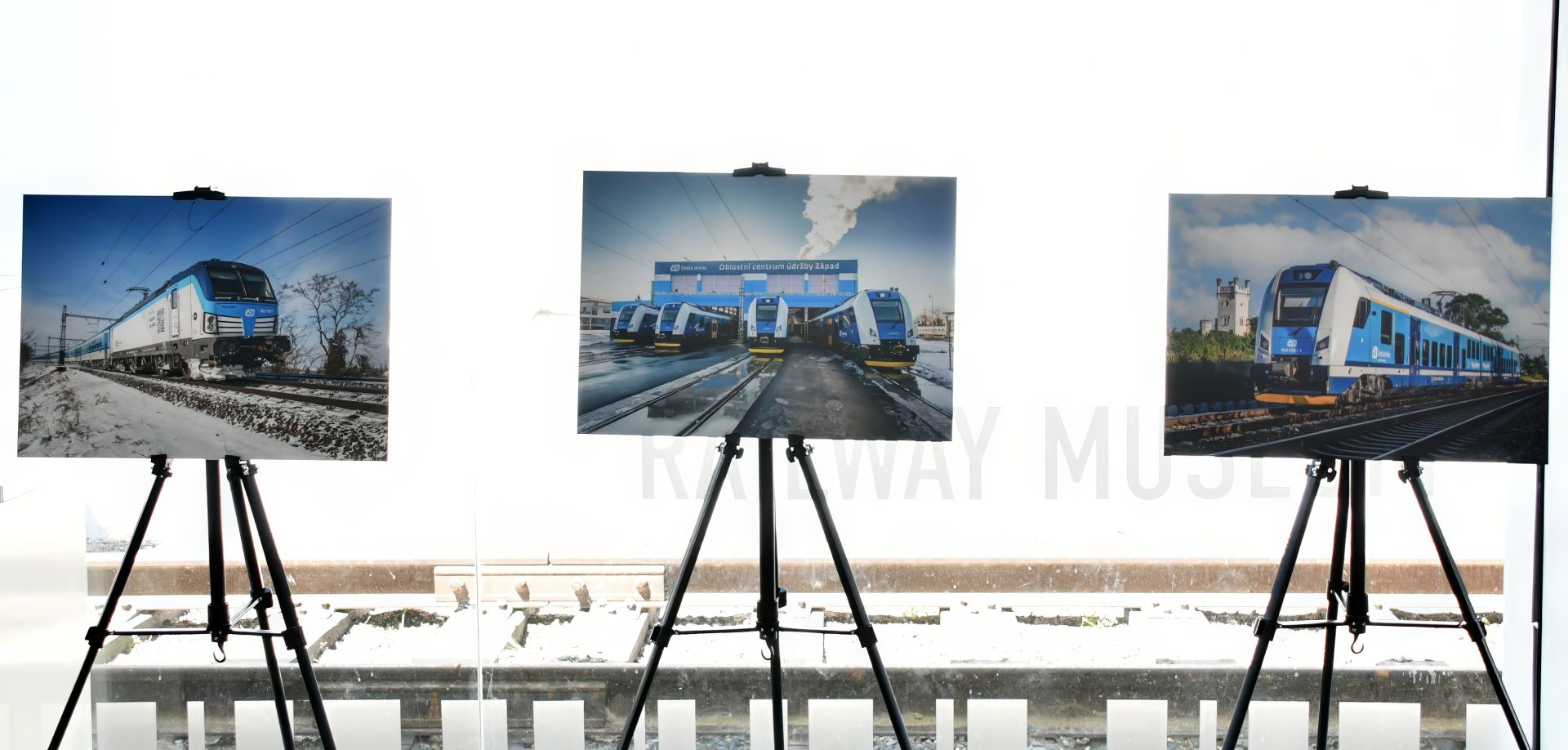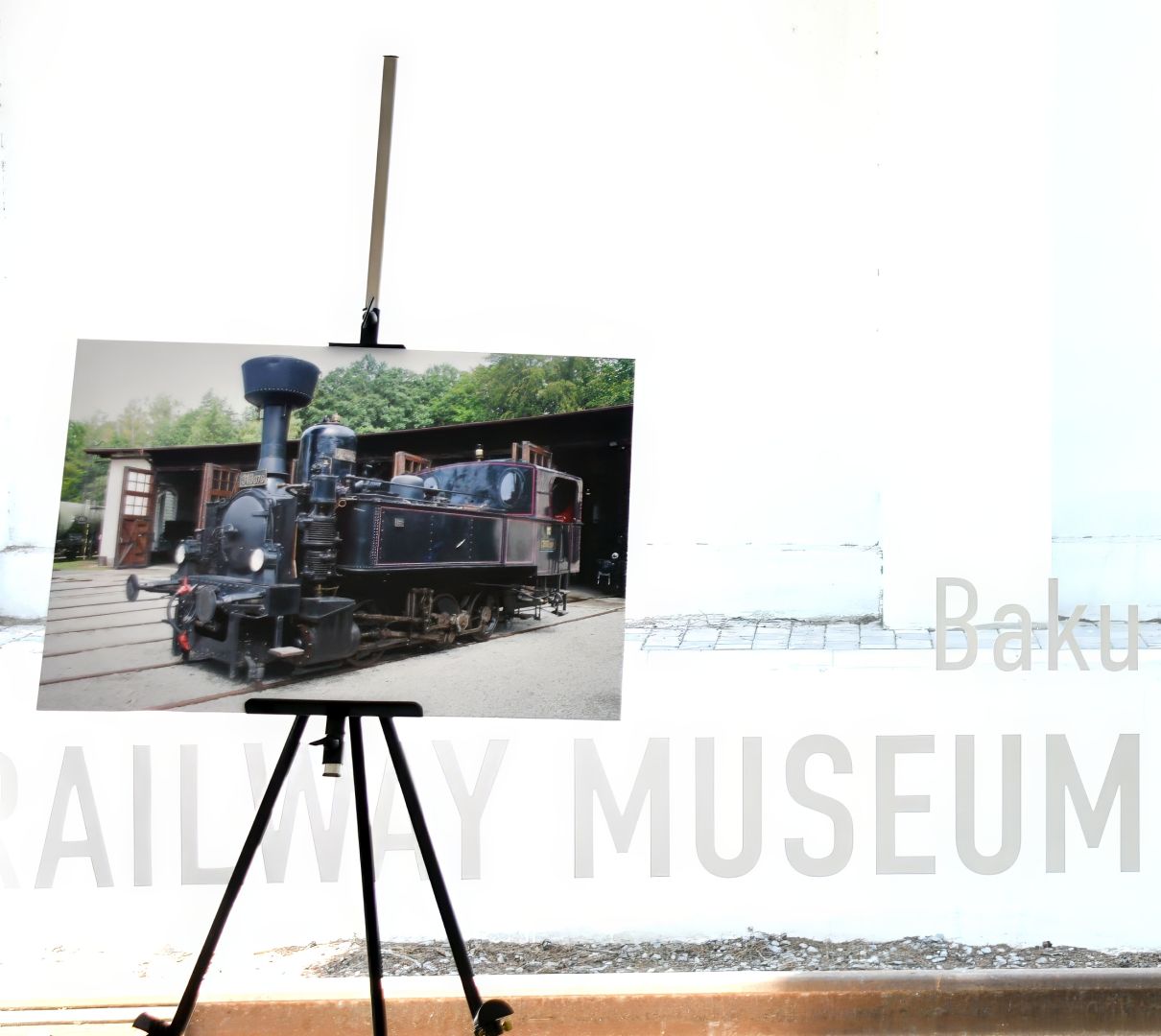Photography project "History of Czech Railways" presented in Baku [PHOTOS]
![Photography project "History of Czech Railways" presented in Baku [PHOTOS]](https://www.azernews.az/media/2024/05/23/dsc_8771-1.jpg)
A photography project, "The History of the Czech Railways", has been presented at the Azerbaijan Railway Museum.
At the opening of the event, speeches were made by the Head of the Communication Department of Azerbaijan Railways, Aybeniz Ismayilova, the Deputy Ambassador of the Czech Republic to Azerbaijan Martin Ljuboyacki and the author of the project, photographer Aydin Sadikhov.
The opening of the exhibition was attended by a large number of guests, including deputies of the Azerbaijani Parliament, heads and representatives of diplomatic missions, public figures, and representatives of science, culture and art.
The opening of the exhibition was also attended by students from the British School. The children were told about the ancient locomotives presented at the exhibition and had an interesting tour of the Museum of Azerbaijan Railways. And from the organisers of the exhibition, the children received memorable gifts.
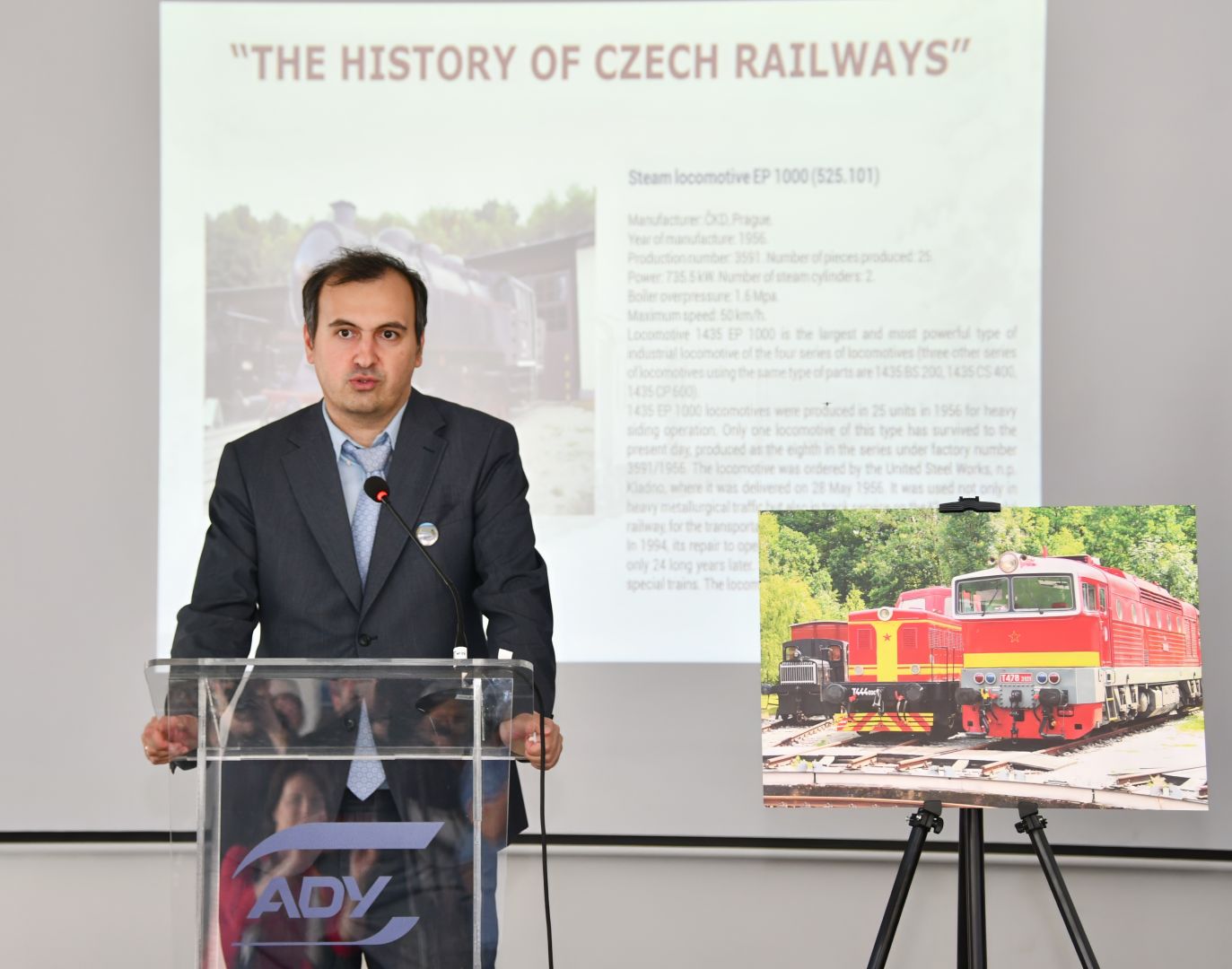
Initiated by the Azerbaijani photographer Aydin Sadikhov, the project provides insight into the history the Czech Railways.
"Twenty two photographs presented by the author of exposition invite the visitors to take part in an amazing journey into the railway World of the Czech inventions: historical locomotives and trains, architectural buildings of railway stations and interesting railway techniques.The exposition covers different historical periods, so visitors can explore the timeline of the Czech railway development, starting from the oldest models of steam locomotives to diesel and electric locomotives. Especially for display in this photo project, the Czech Railways kindly provided several photographs of new types of trains currently running on the railways of the Czech Republic, photos of railway depots for these trains, as well as a number of interesting video materials about historical locomotives," Aydin Sadikhov told Azernews.
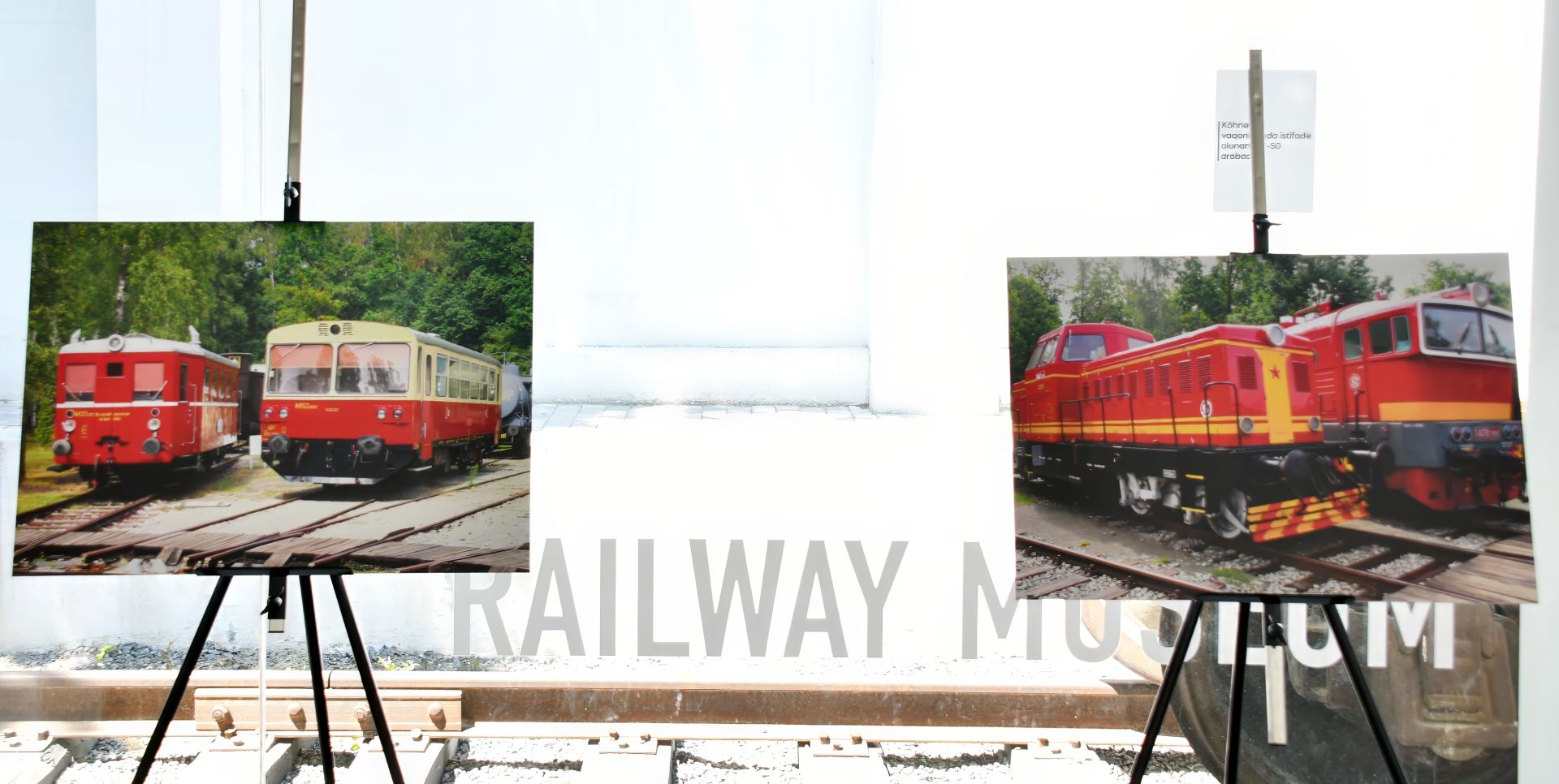
The history of Czech Railways has a lot of unique records, interesting features and great technical achievements which played an important role in the historical development of the global railway industry. The scope of the Czech railway network and its density is one of the largest in Europe comprising almost 10,000 km of railway tracks within the 79,000 km2 country, so that gives an opportunity to travel almost anywhere by train. The majority of passenger services run nowadays are operated by the state company České dráhy (Czech Railways), which until 2007 also managed cargo services now run by ČD Cargo.
Looking back into history, we can discover a lot of interesting facts about the way of the Czech railways' development. The first railway – a horse-drawn line linking České Budějovice in Bohemia and Linz in Austria, started operation in 1828. Problems with horse transport included the fact that any given animal could only work so many hours on a given day, had to be housed, groomed, fed, and cared for from day to day.
Railway transportation began to develop soon after, and the first steam trains arrived onto the tracks in today’s Czech Republic in 1839. The period between 1839-1841 brought the construction of new railway connections between different Czech cities, including Břeclav, Přerov and Olomouc. The first train arrived at the Prague railway station on August 20, 1845, through the newly built passage in the Prague walls, which is now called Prague-Masaryk Station. But as we know, technology is always moving forward, so the steam era of trains ended and was changed by the new world of electrical railways. The first electric track in the Czech Republic was opened in June 1903 and connected the way from Tábor to Bechyně.
The railway was built and developed from the 19th century to the mid-20th century. Therefore, almost all railway stations in the Czech Republic are historical. Praha Hlavní Nádraží is the largest railway station in Prague. The development and amazing architectural design of the Prague Main Railway Station are also very interesting. It was opened in 1871, but the station received its current view in Art Nouveau architectural style between 1901 and 1909 years. The Art Nouveau building façade and station hall, which are considered one of the most beautiful in Europe - were designed by Czech architect Josef Fanta.
One of the most important works in Czech as well as global railway history was the legendary Škoda Works. Count Waldstein established a metallurgical factory in Plzeň in 1859. Starting with 100 employees, the factory made products for breweries, mines, steam engines, and railway products. Sooner, the factory was bought by its chief engineer, Emil Škoda in 1869 and by the end of the century, it had become one of the largest enterprises in Europe. The Factory earmarked a large portion of its facilities for manufacturing locomotives. Production first started with an order for 30 locomotives, and soon the first Škoda locomotive left the factory on June 11, 1920. The company produced its 100th locomotive on September 13, 1921, and in 1927, Škoda started the production of its first express electric locomotive, along with the electric freight locomotives.
The Czech Republic always properly takes care of its history. The result of that important fact are amazing railway museums with well-preserved historical locomotives and engines, located in different parts of the country, and the exclusive opportunity to ride on the historical steam locomotives, called "Nostalgia Train Journey," at the narrow-gauge train tracks.
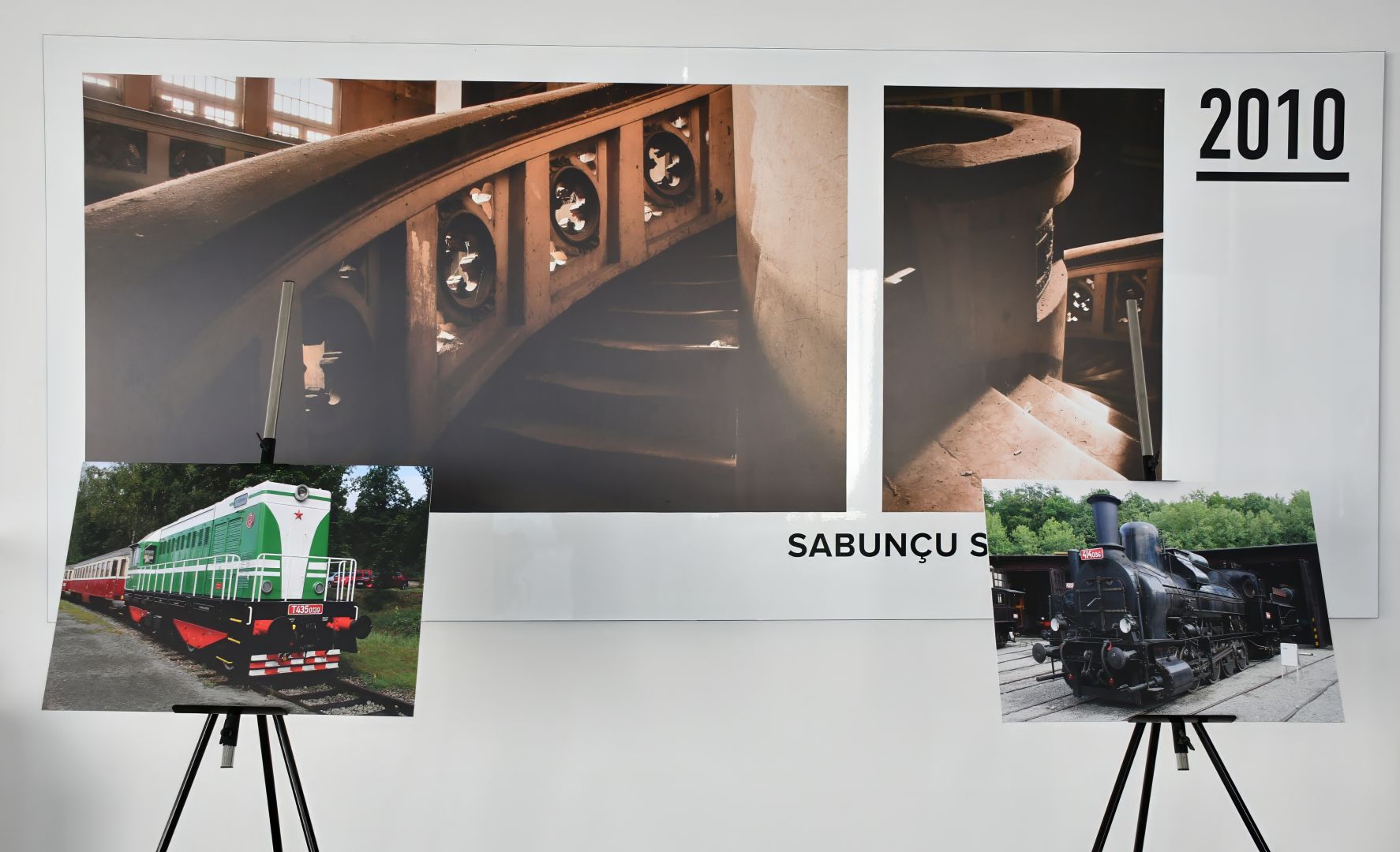
The author of the exhibition has also prepared video material in which you can get acquainted in detail with the features, technical details, and historical notes about all the trains presented in the photos. The visitors of the photo exhibition will have an exclusive chance to explore the historical railway inventions manufactured in the legendary Škoda Works. The central place of the exposition will take photos of interesting steam, diesel, and electrical locomotives that were made by the exposition author in the famous Czech Railway Museum in Lužná u Rakovníka.
The Railway Museum in Lužná u Rakovníka is the largest railway museum in the Czech Republic. Lužna u Rakovnika, on the edge of the Kinvoklát forest, a little more than an hour’s journey west of Prague on the railway to Chomutov, has since 1997 been the location of the museum of the Czech Railways. It is located, adjacent to the passenger station, in a former locomotive depot of the Buštĕrhrad Railway, a roundhouse with extensive open-air sidings around it, where the coal loading stage, water cranes, inspection, and ash pits are still in situ. A museum collection called Steel Legends consists of more than 30 narrow-gauge track locomotives.
The museum exhibits a huge variety of steam, diesel, and electrical locomotives, railway techniques, and it also gives the children the opportunity to enter the historical trains and travel on one of them in the territory of the museum park.
The photography exhibition project "The History of Czech Railways" gives a unique chance for visitors to explore in detail such the rarest historical locomotives like the No 310.076, that was built in 1899 and worked until the 1950s, and other oldest and amazing models. Another rarest example, No EP 1000 (525.1) locomotives were produced in 25 units in 1956 for heavy metallurgical traffic operations. Only one locomotive of this type has survived to the present day. That locomotive was ordered by the United Steel Works of Kladno, where it was delivered on 28 May 1956 and used for transportation of coal, iron ore and limestone.
The photo project also features a series of historical pin-badges dedicated to various events in the history of the Czech Railways.
A series of eleven unique pin badges, issued in 1950-1980, consists of badges from famous historical and railway depots of various cities of the Czech Republic, including Ceske Velenice, Brno, Louny, Krnov, Jihlava, Sokolov and others. Each of the presented pin-badges was issued in connection with specific historical developments achieved by the Czech Railways.
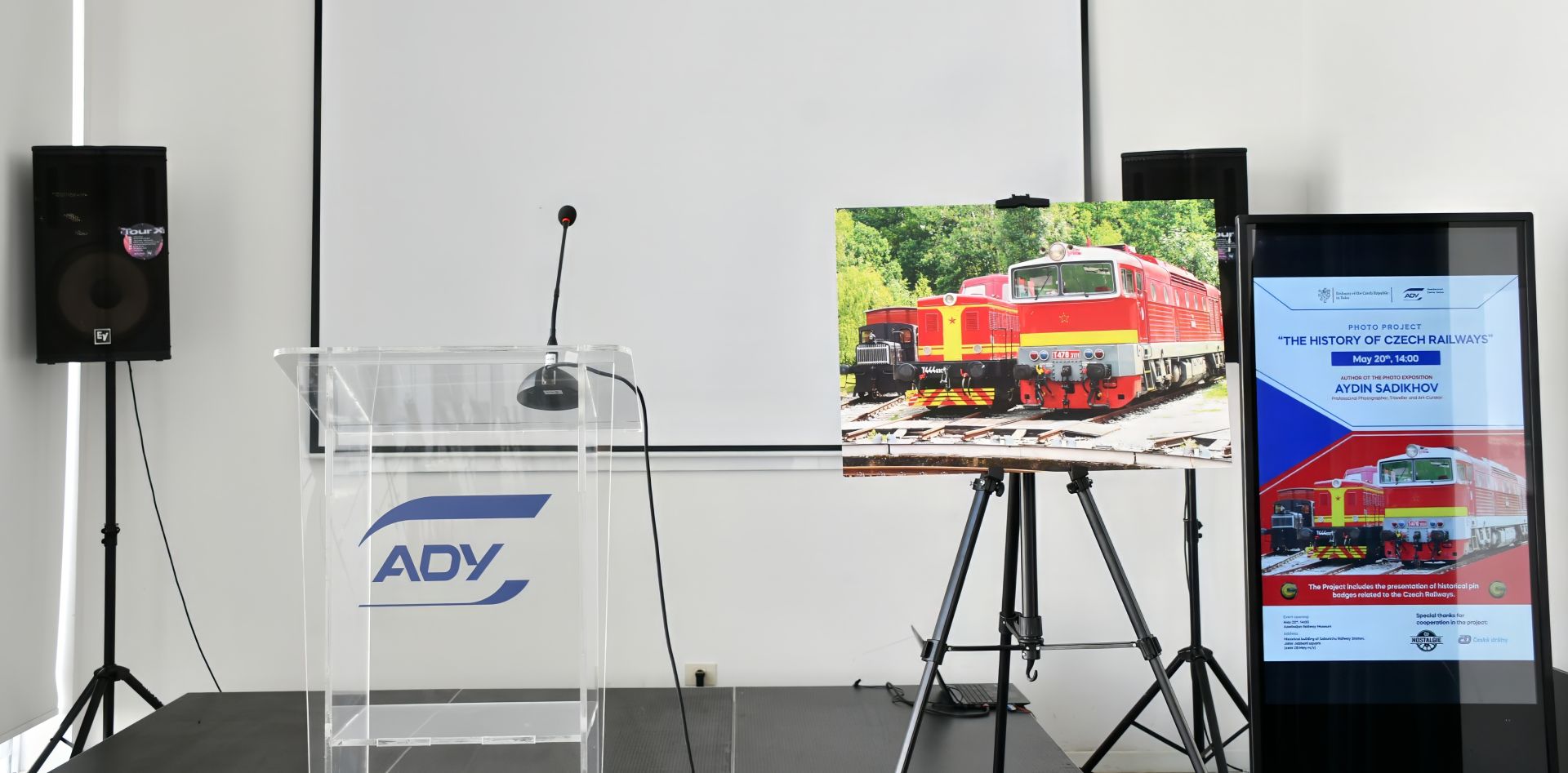
The photo exhibition will last until June 1.
----
Laman Ismayilova is AzerNews’ staff journalist, follow her on Twitter: @lmntypewriterrr
Follow us on Twitter @AzerNewsAz
Here we are to serve you with news right now. It does not cost much, but worth your attention.
Choose to support open, independent, quality journalism and subscribe on a monthly basis.
By subscribing to our online newspaper, you can have full digital access to all news, analysis, and much more.
You can also follow AzerNEWS on Twitter @AzerNewsAz or Facebook @AzerNewsNewspaper
Thank you!


